Desde Afuera + Susurros de virtudes profundísimas: Rosita Relámpago
ORGANIZED BY FORTUNA
JUNE 10TH - JUNE 24TH, 2022
Desde Afuera + Susurros de virtudes profundísimas: Rosita Relámpago is a collaboration with Fortuna, an artist-run space and transdisciplinary artist residency program that connects artists and art communities in Omaha, NE and Mexico through reciprocity and exchange. Organizing two interlocking exhibitions on view concurrently at Amplify's Generator Space, Fortuna grounds the process of exchange in- and outside the gallery space to examine the limits of transnational mobility imposed by the colonial nation-state.
Desde Afuera (From the Outside), brings together the work of five artists from Omaha and Mexico City. Employing a wide range of production skills and representational formats, Maritza Estrada, El Pinche Barrendero, Sonia Madrigal, Obed Sanchez-Liborio, and Marcia Santos cross, criticize, and question the visible and invisible boundaries that shape notions of belonging and what it means to be in, of, or from a place under the imperial condition.
Susurros de virtudes profundísimas: Rosita Relámpago (Whispers of Such Profound Virtues: Rosita Relámpago) serves as a metaphysical counterpoint to the political preoccupations of Desde Afuera. Articulating borders as spaces where seen and unseen histories collide, Relámpago uses a largely symbolic visual lexicon in works on paper and ceramic vessels to remake and reimagine pre-colonial cultural traditions.
By centering the practice of exchange in its work, Fortuna also navigates the bureaucratic regulation of migratory artist networks between Omaha and Mexico City. These companion exhibitions are organized in direct response to nationalist policies and agendas that obstruct and obfuscate open borders of exchange.
Free and open to all, viewings of the exhibitions are by appointment and limited to small groups of 10 people, or fewer. Face masks are required. Please register through Eventbrite or email peter@amplifyarts.org to schedule a time to visit outside of regular gallery appointment hours.
Exhibition Dates: June 10th - June 24th, 2022
Exhibition Opening: June 10th, 2022; 6pm - 9pm
Regular Gallery Hours: Thursdays and Fridays; 1pm - 5pm by appointment.
Generator Grant programming is presented with support from the Nebraska Arts Council and the Nebraska Cultural Endowment.
Installation Images
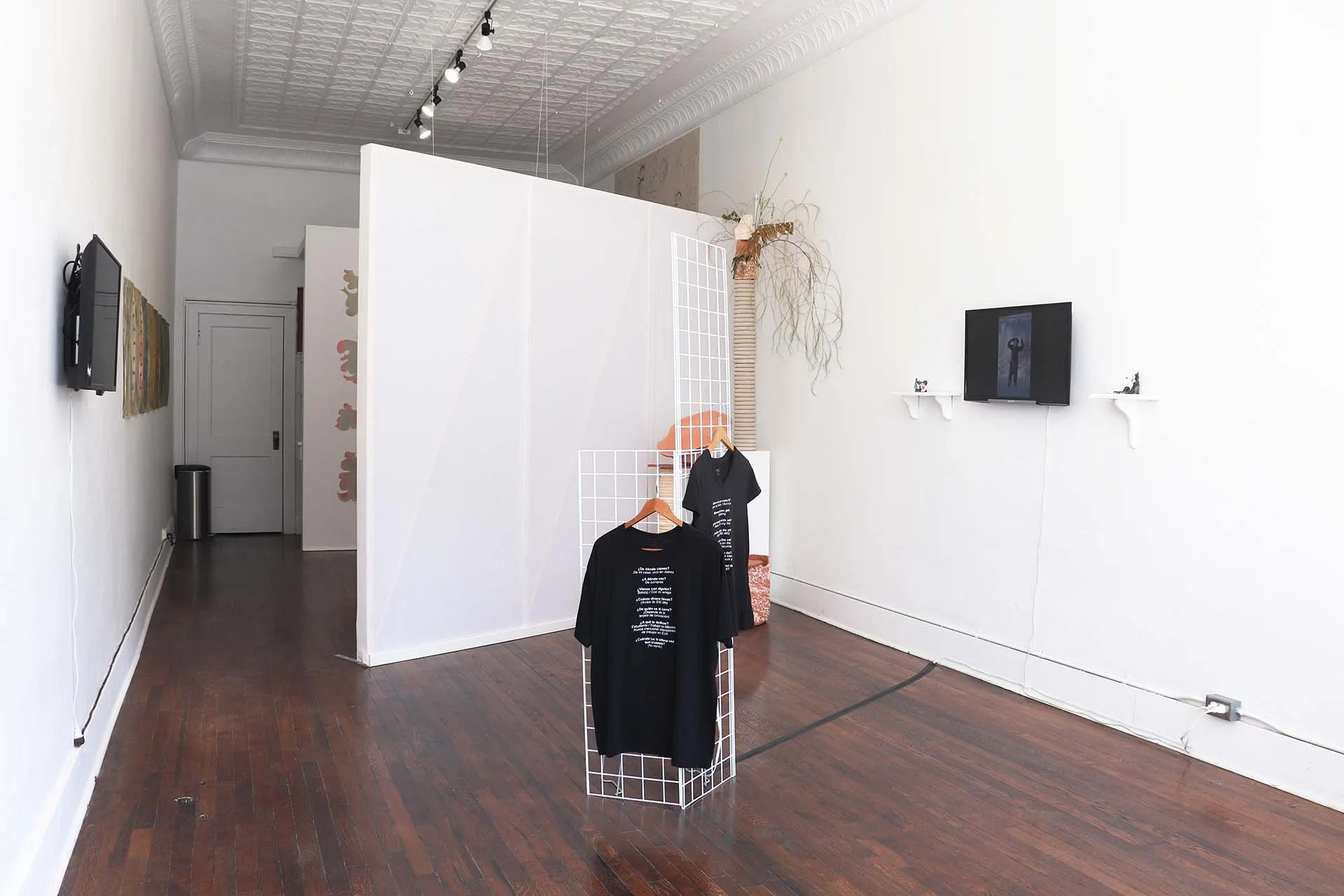
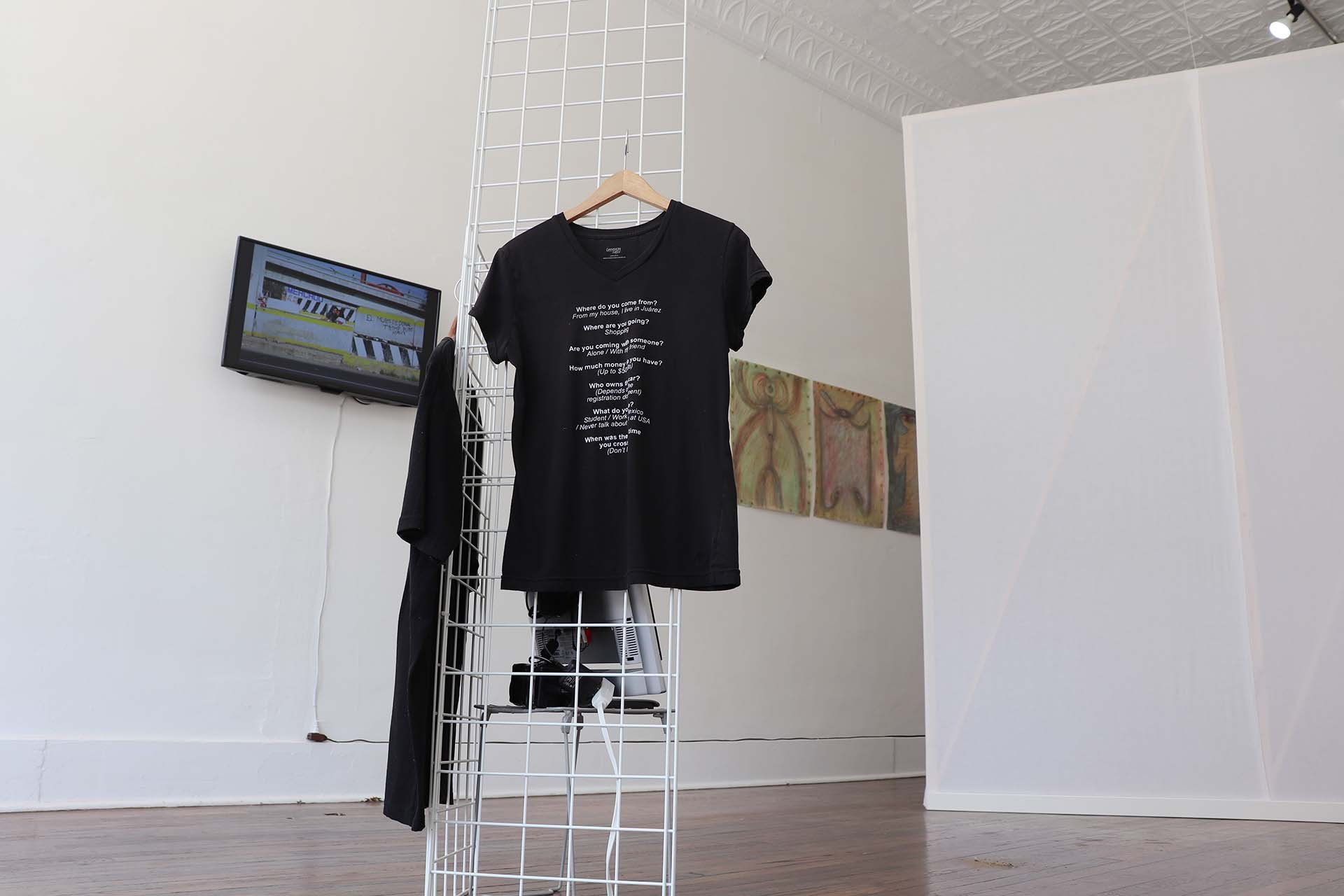
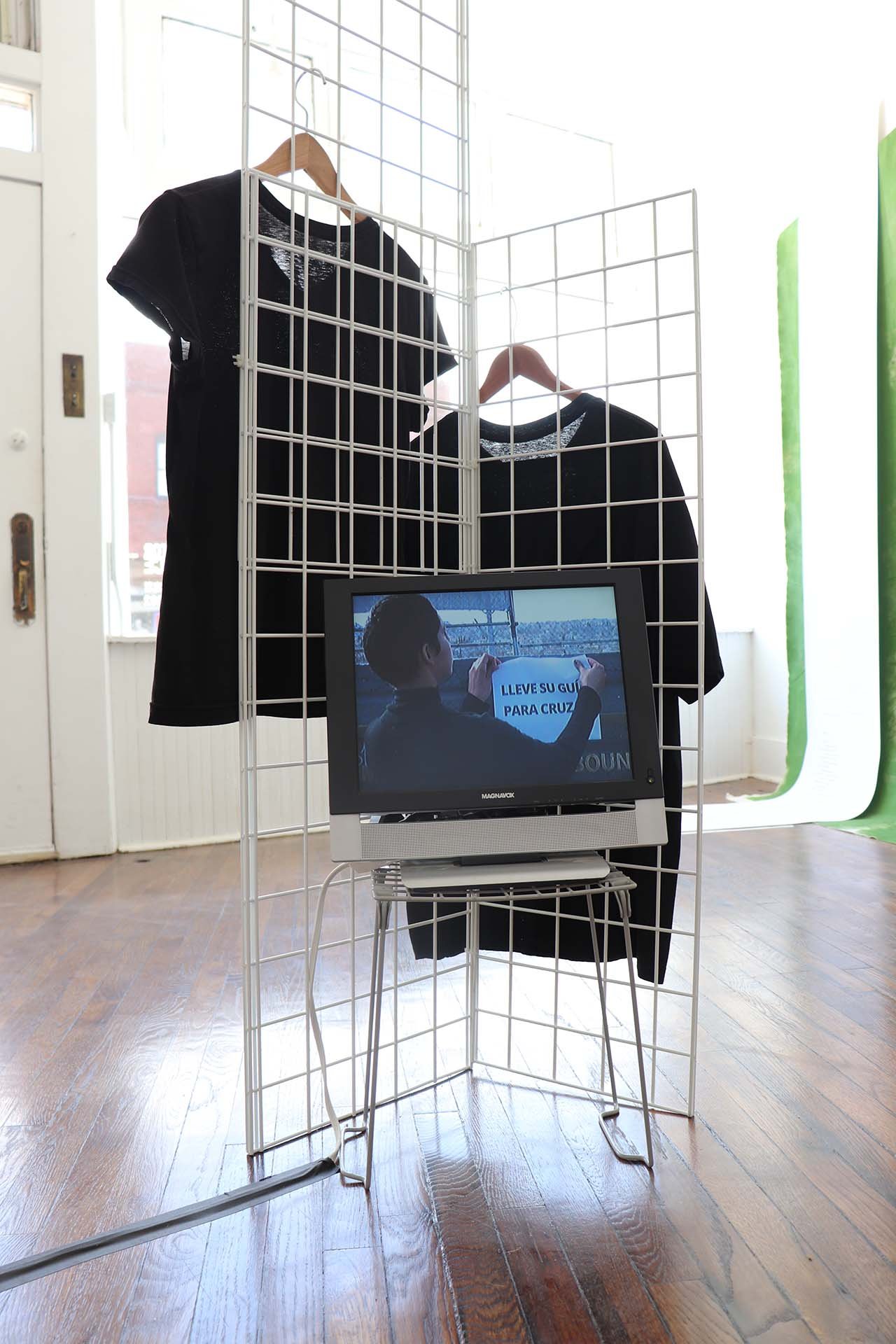
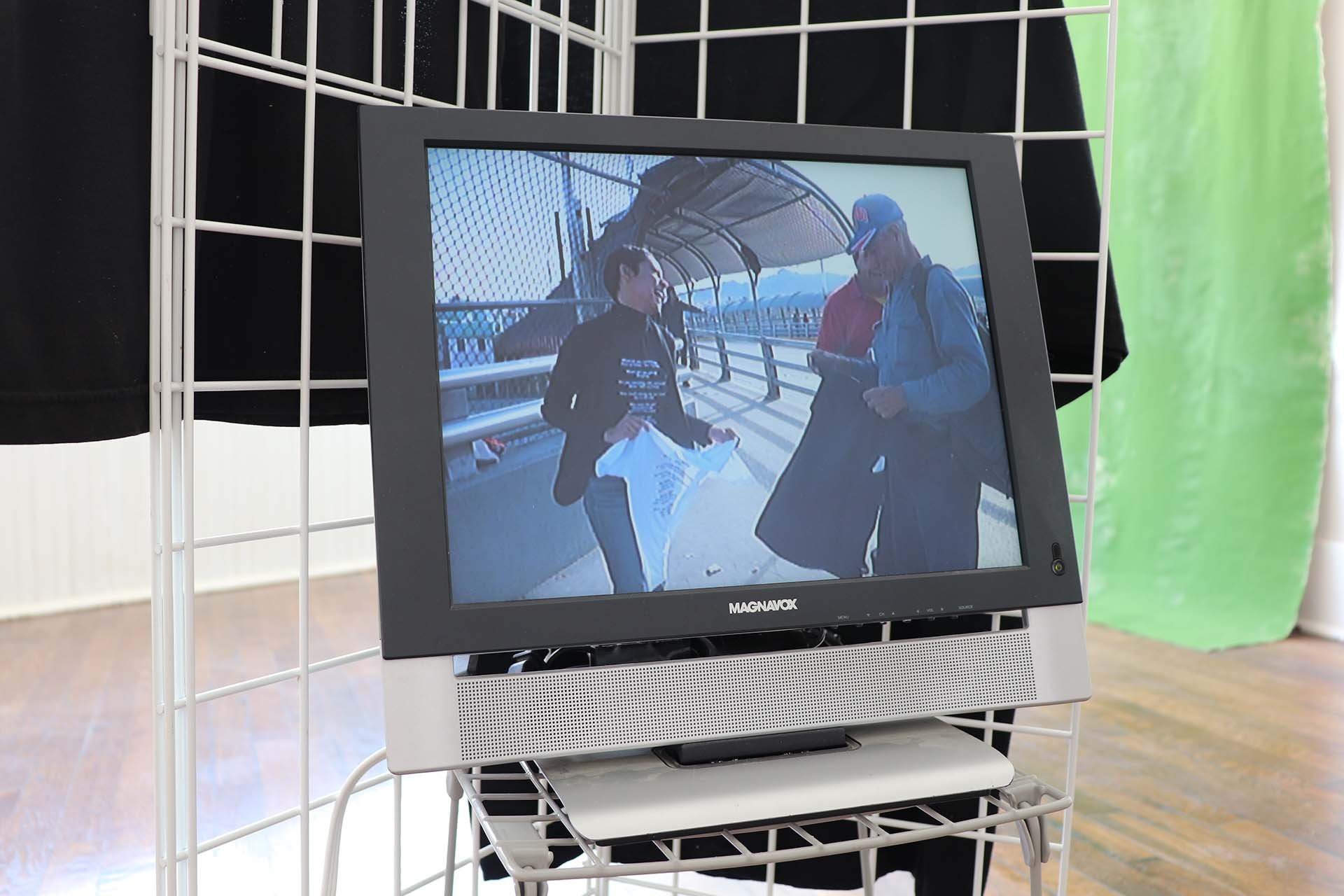
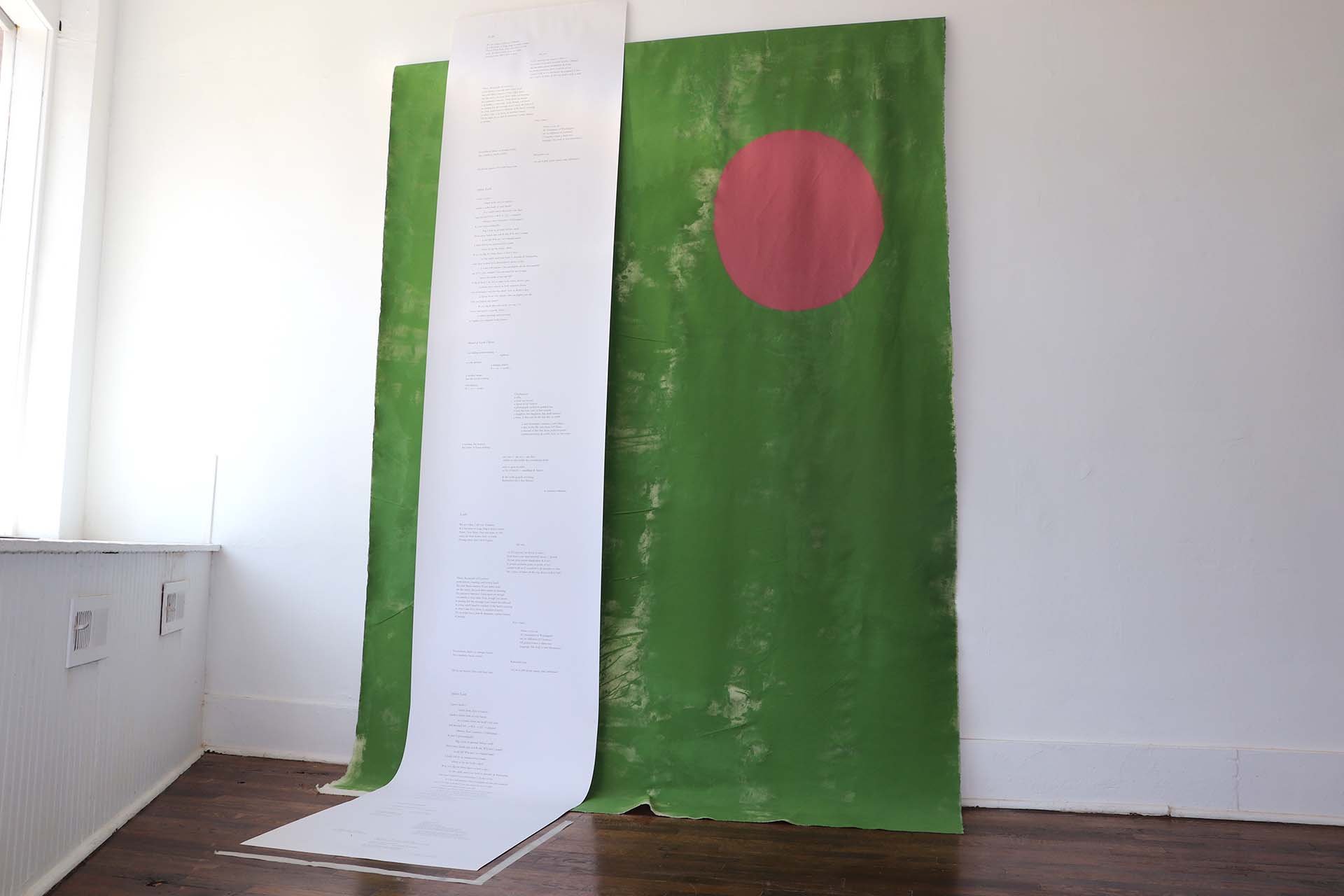
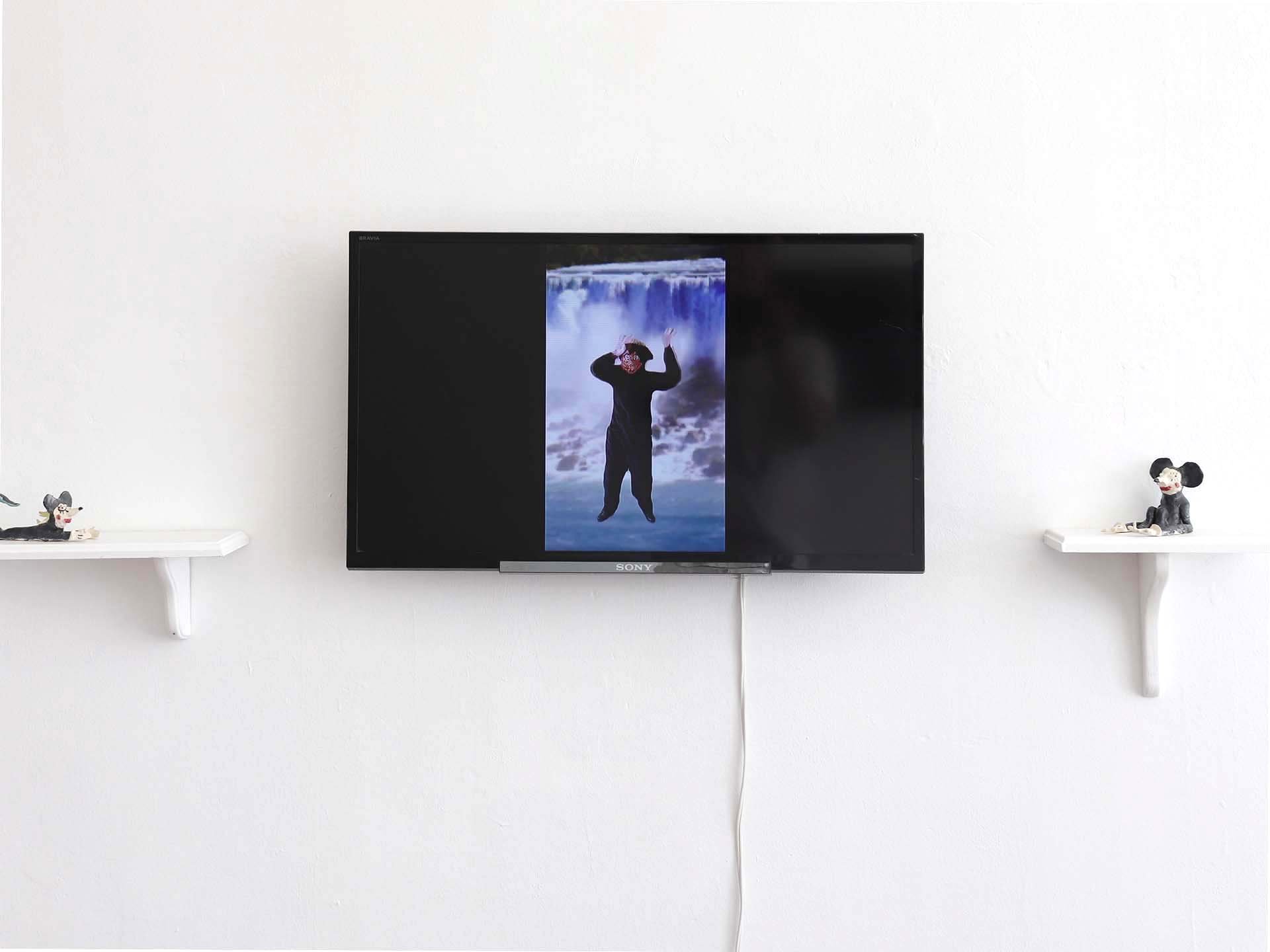
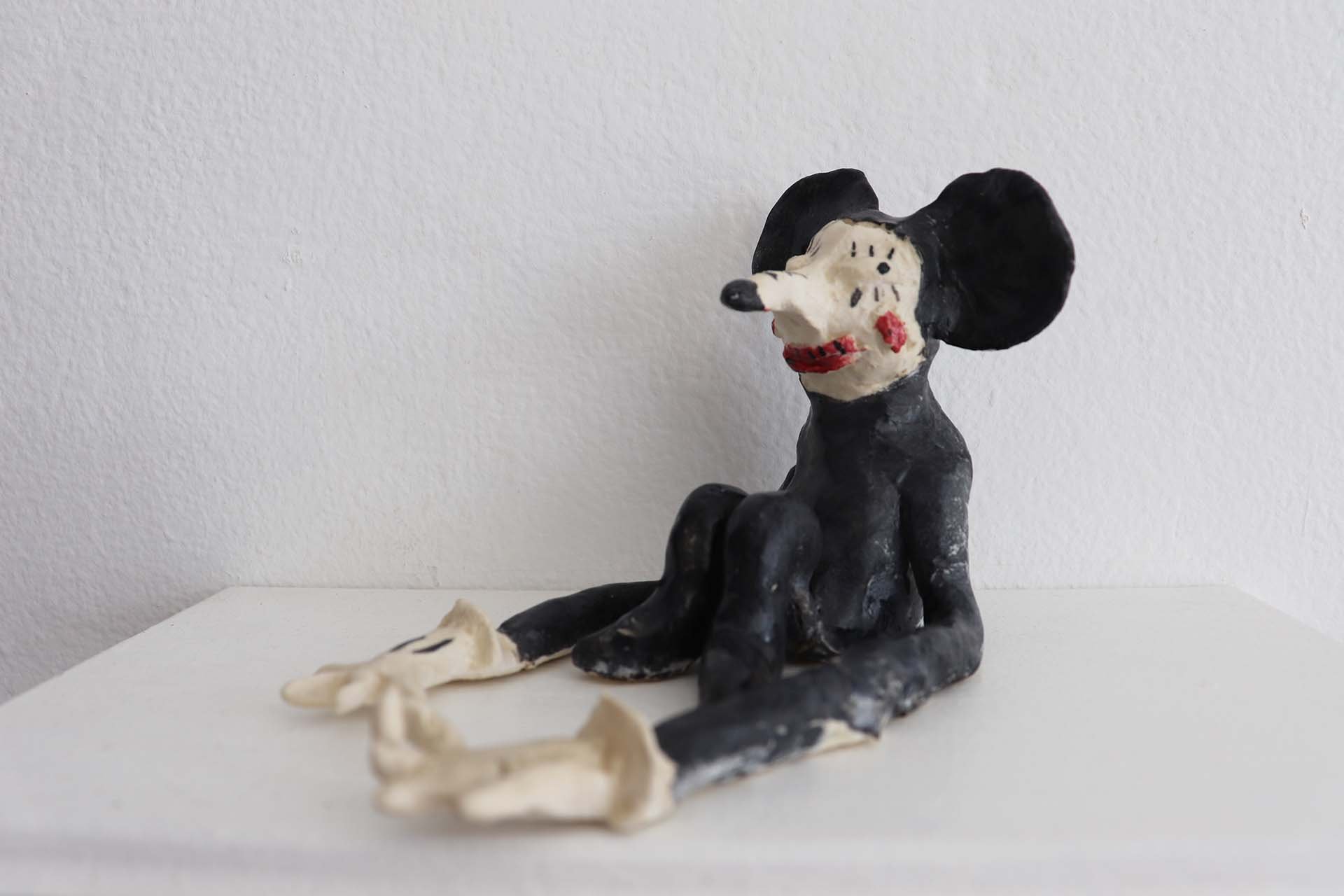
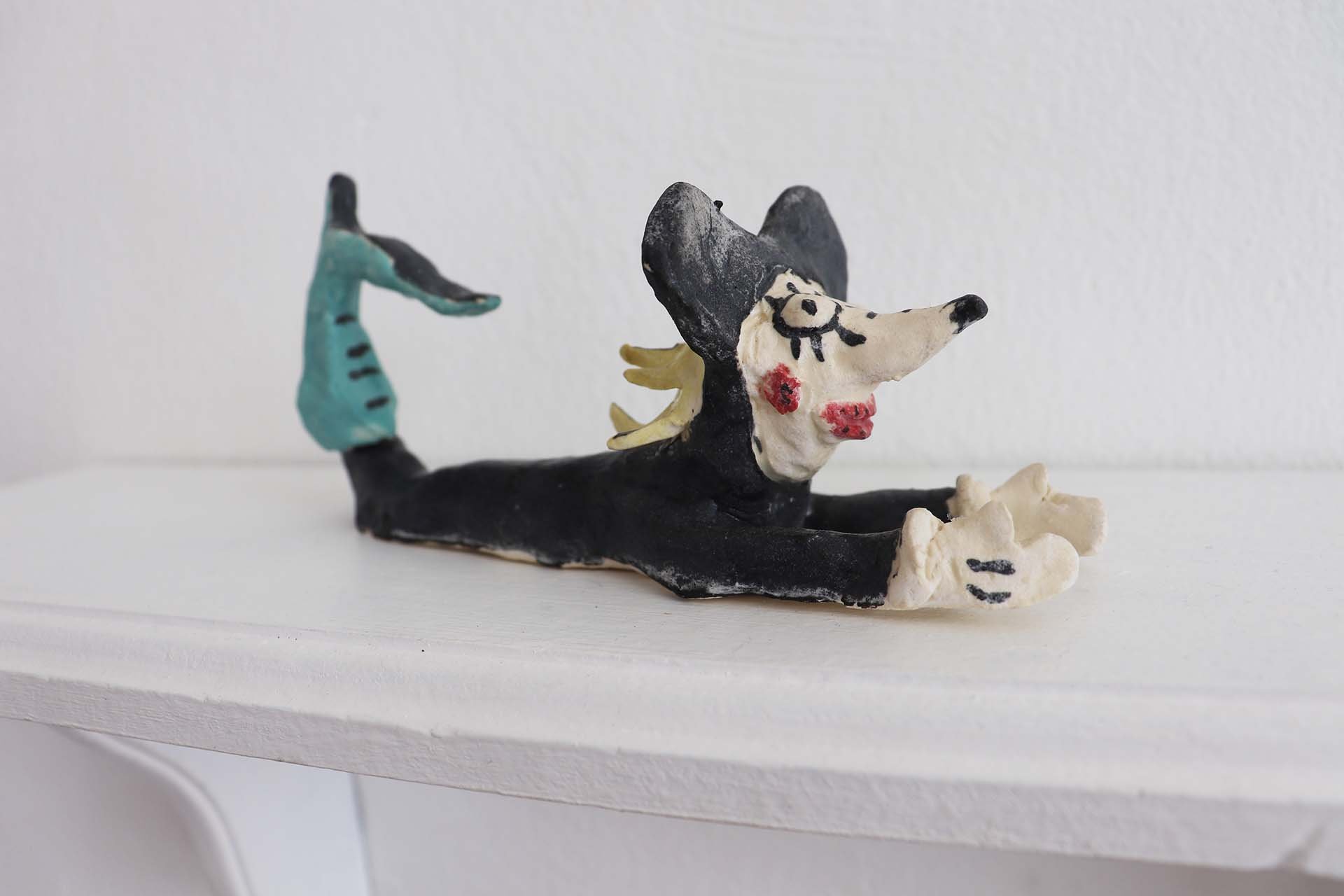
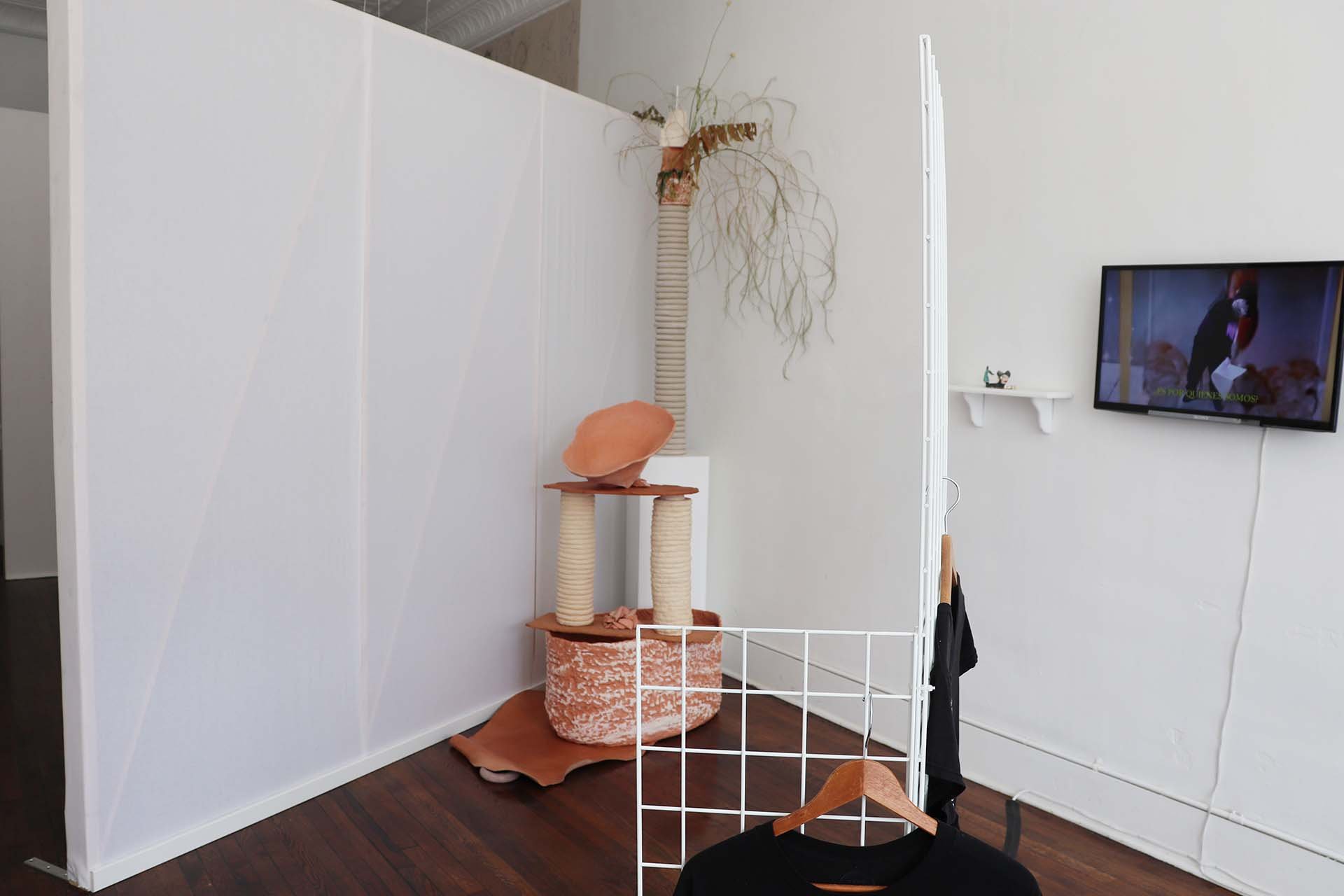
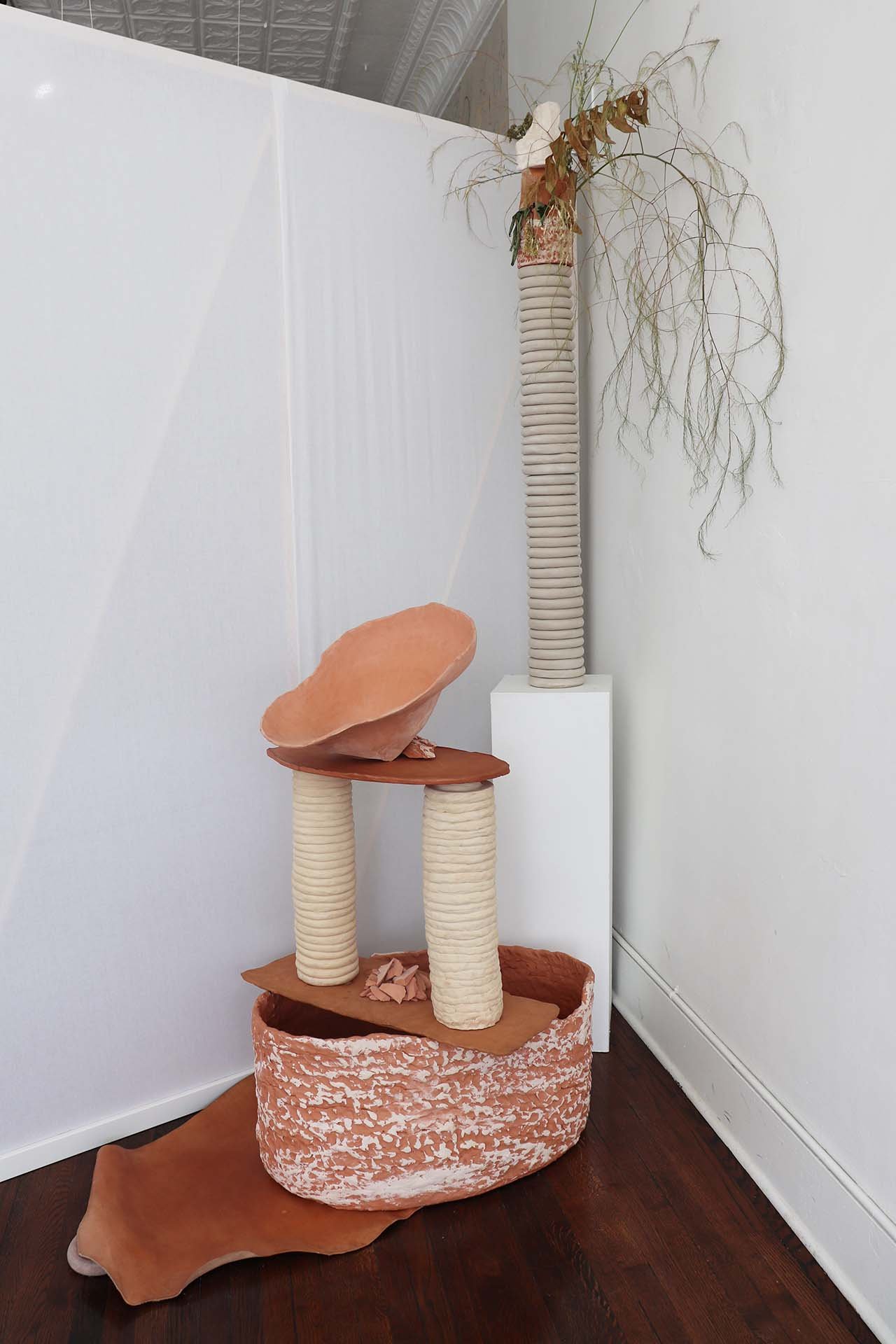
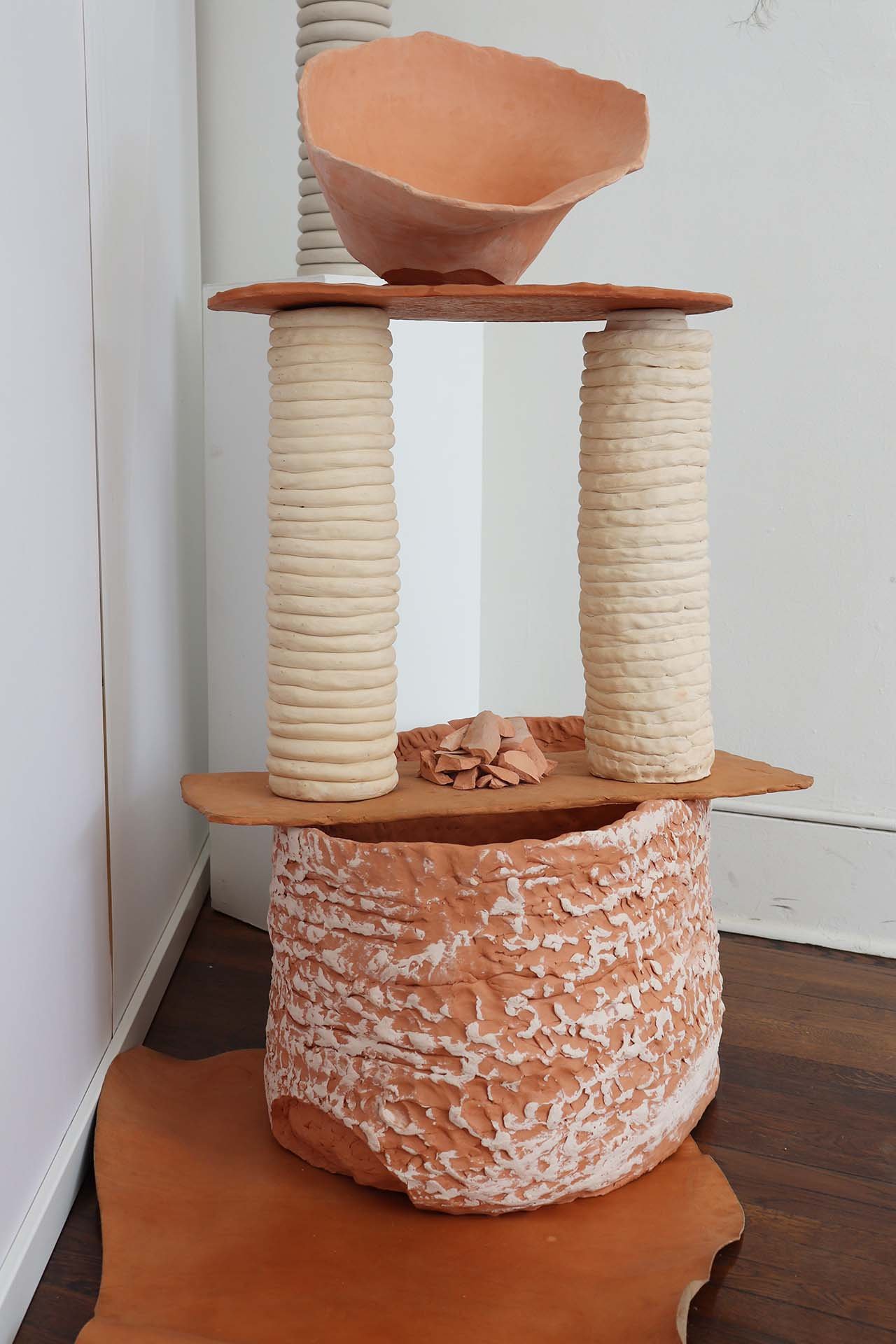
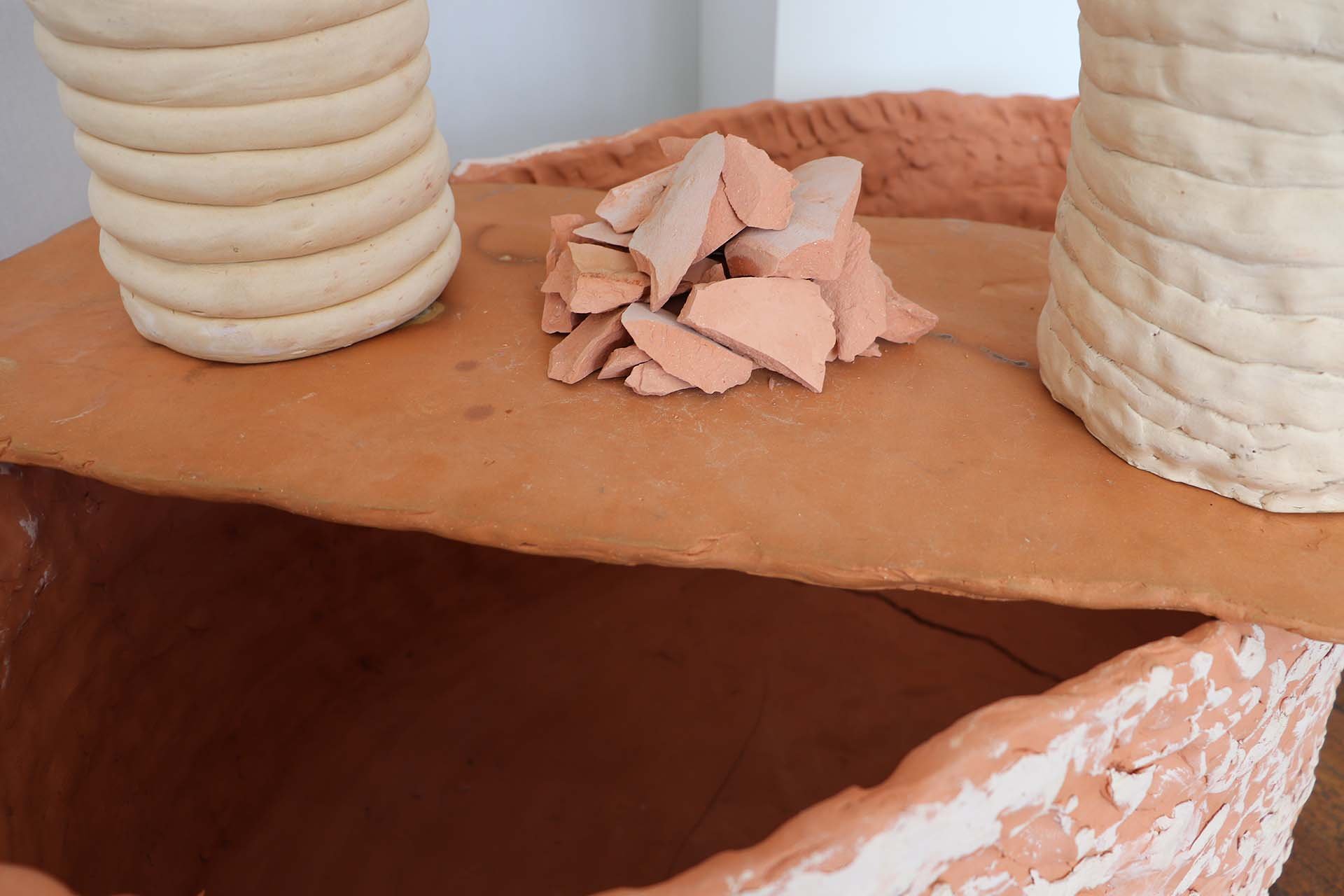
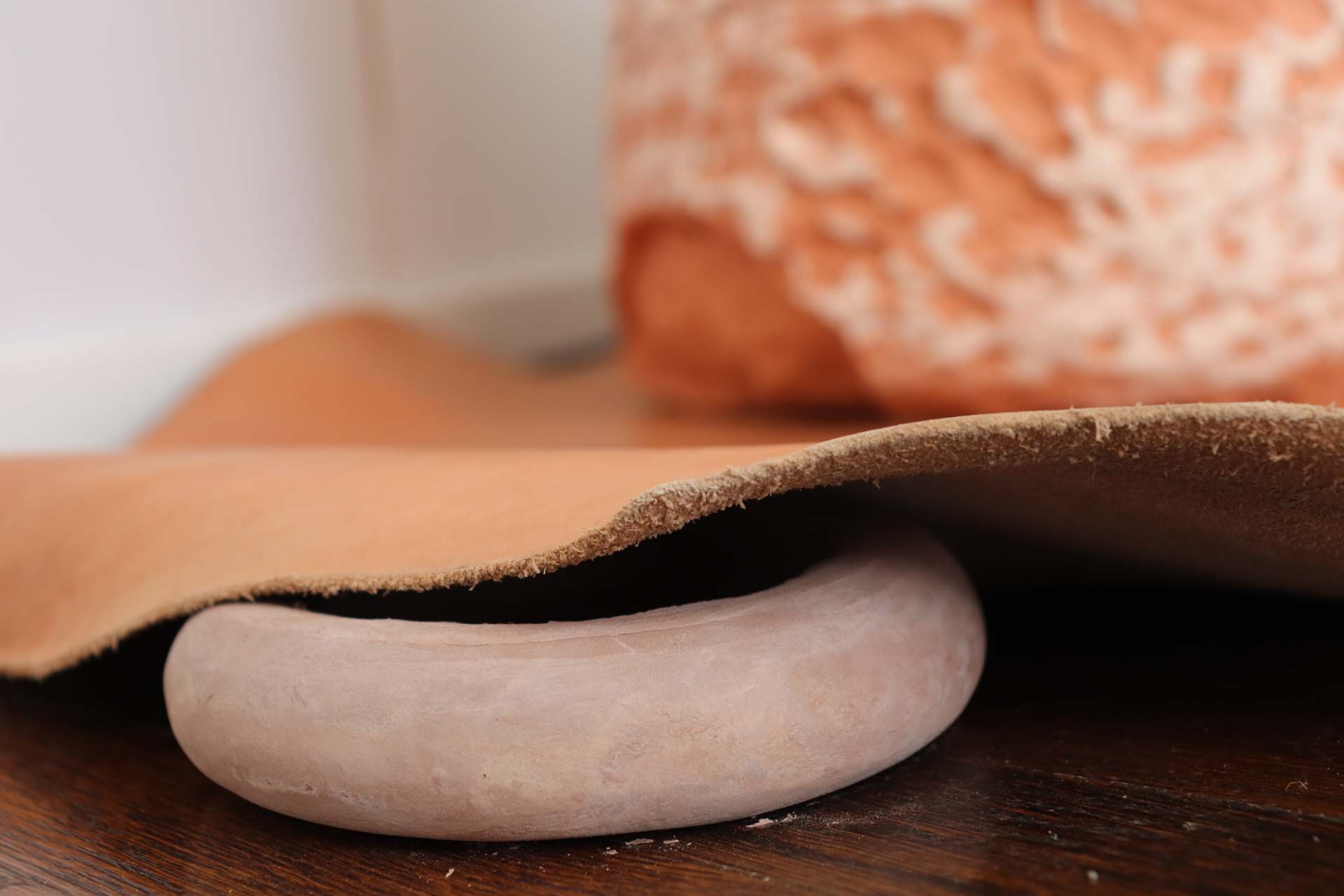
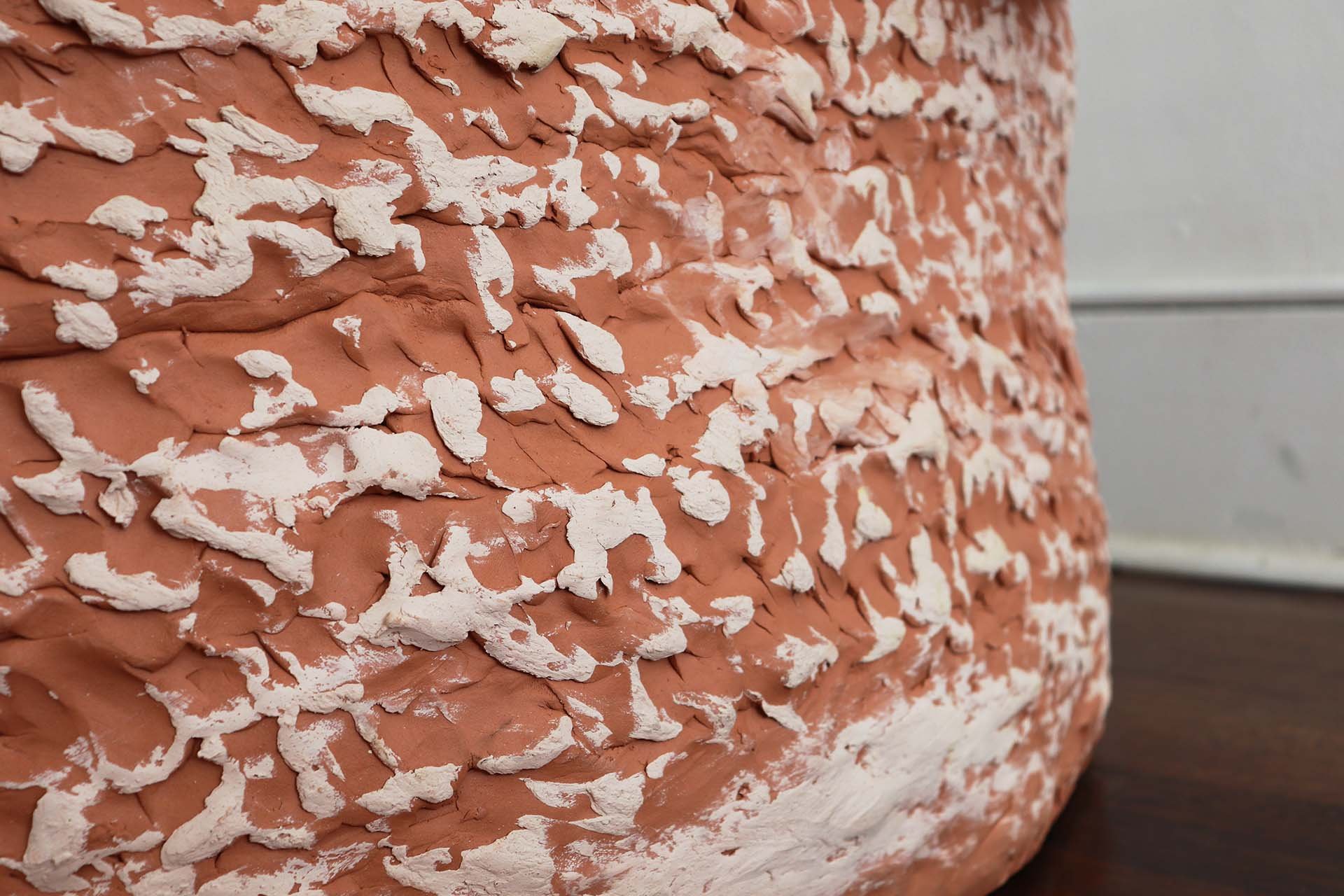
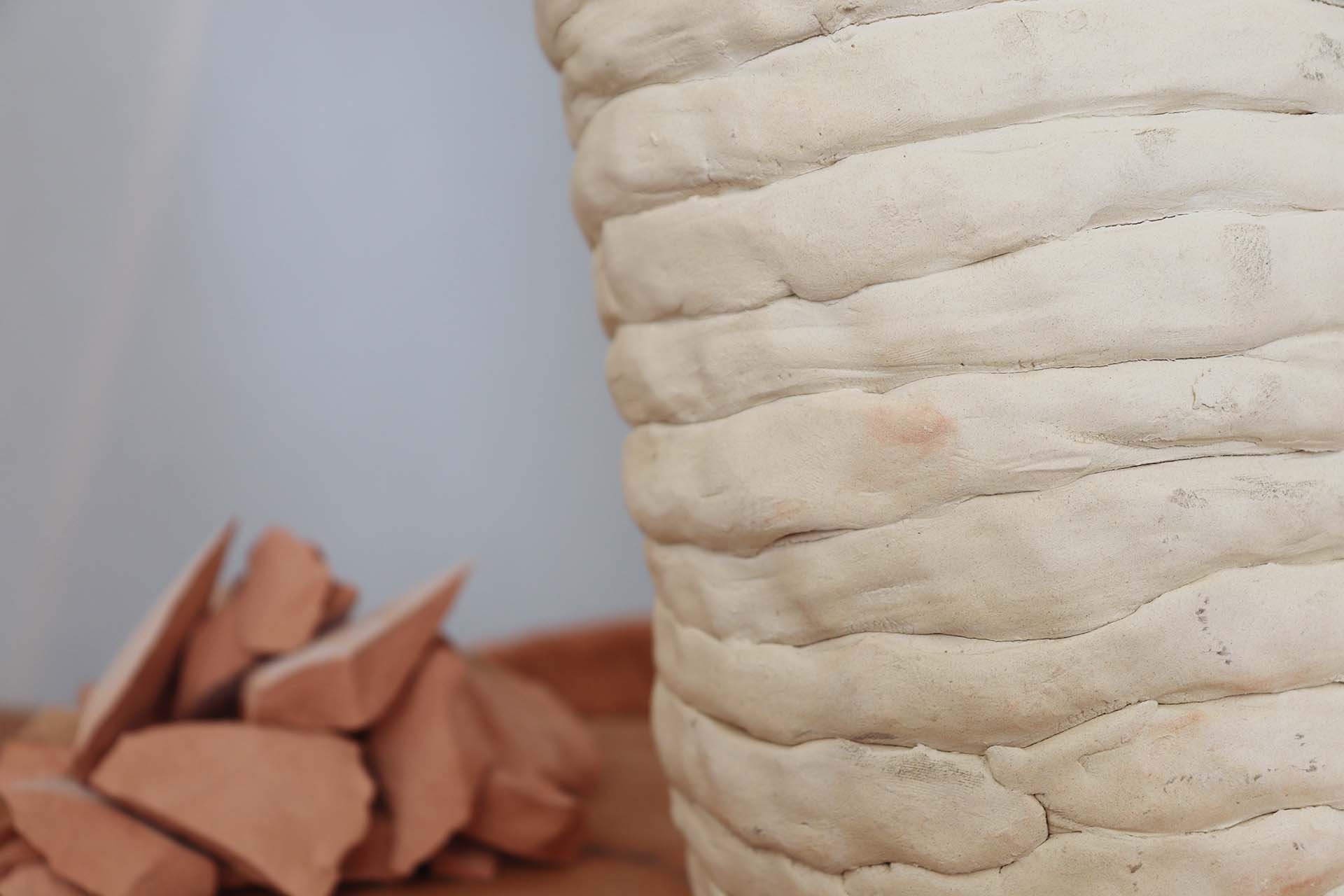
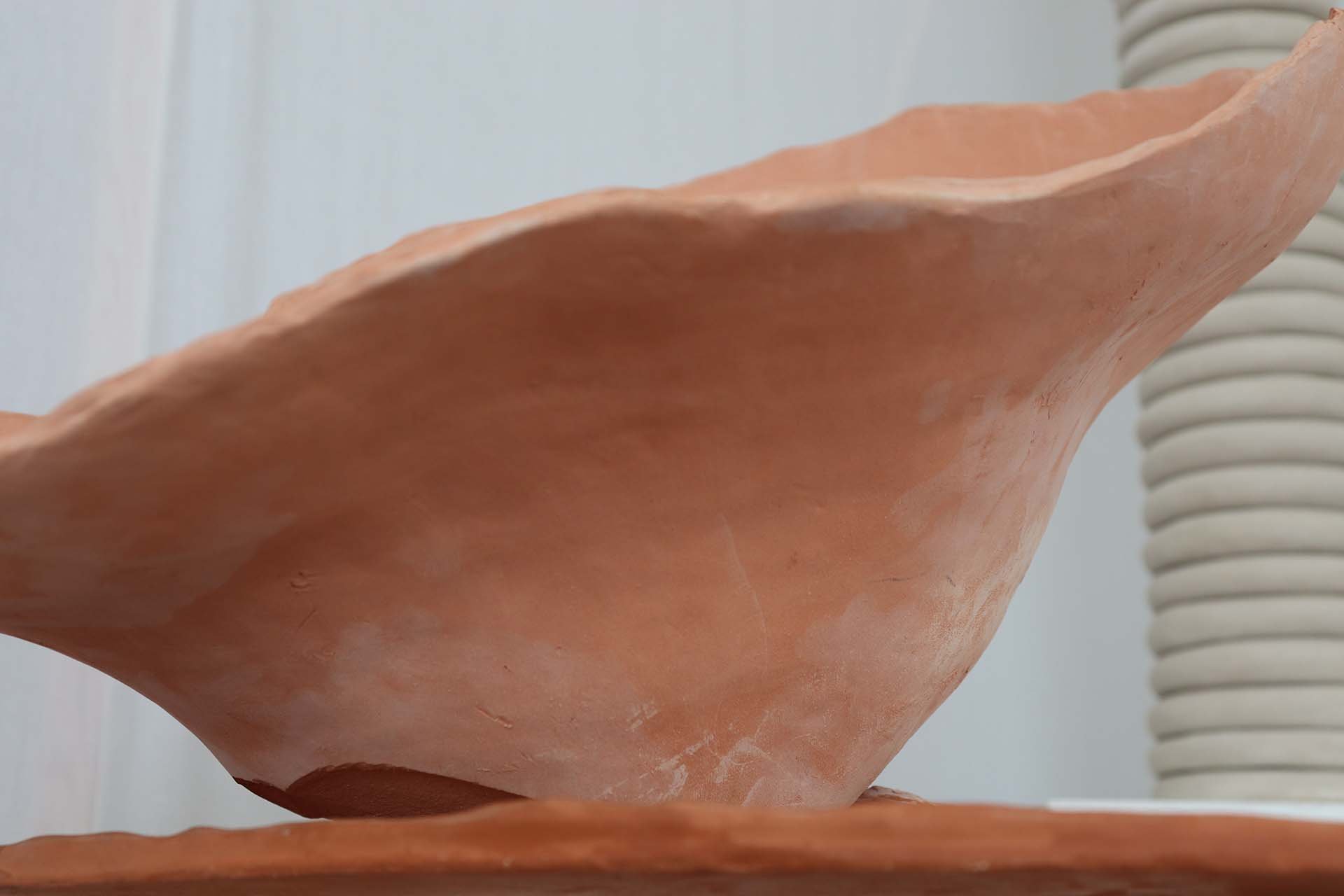
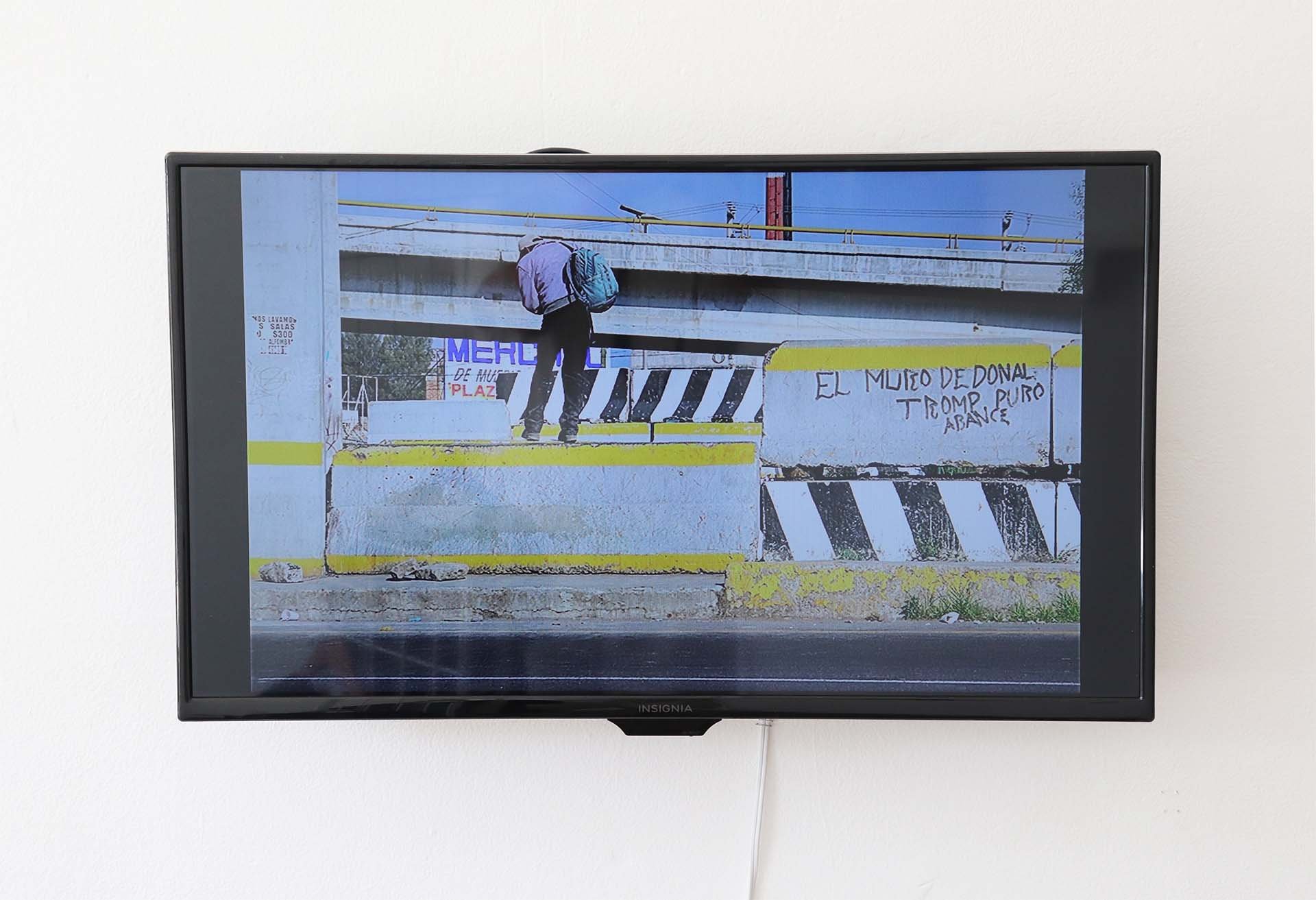
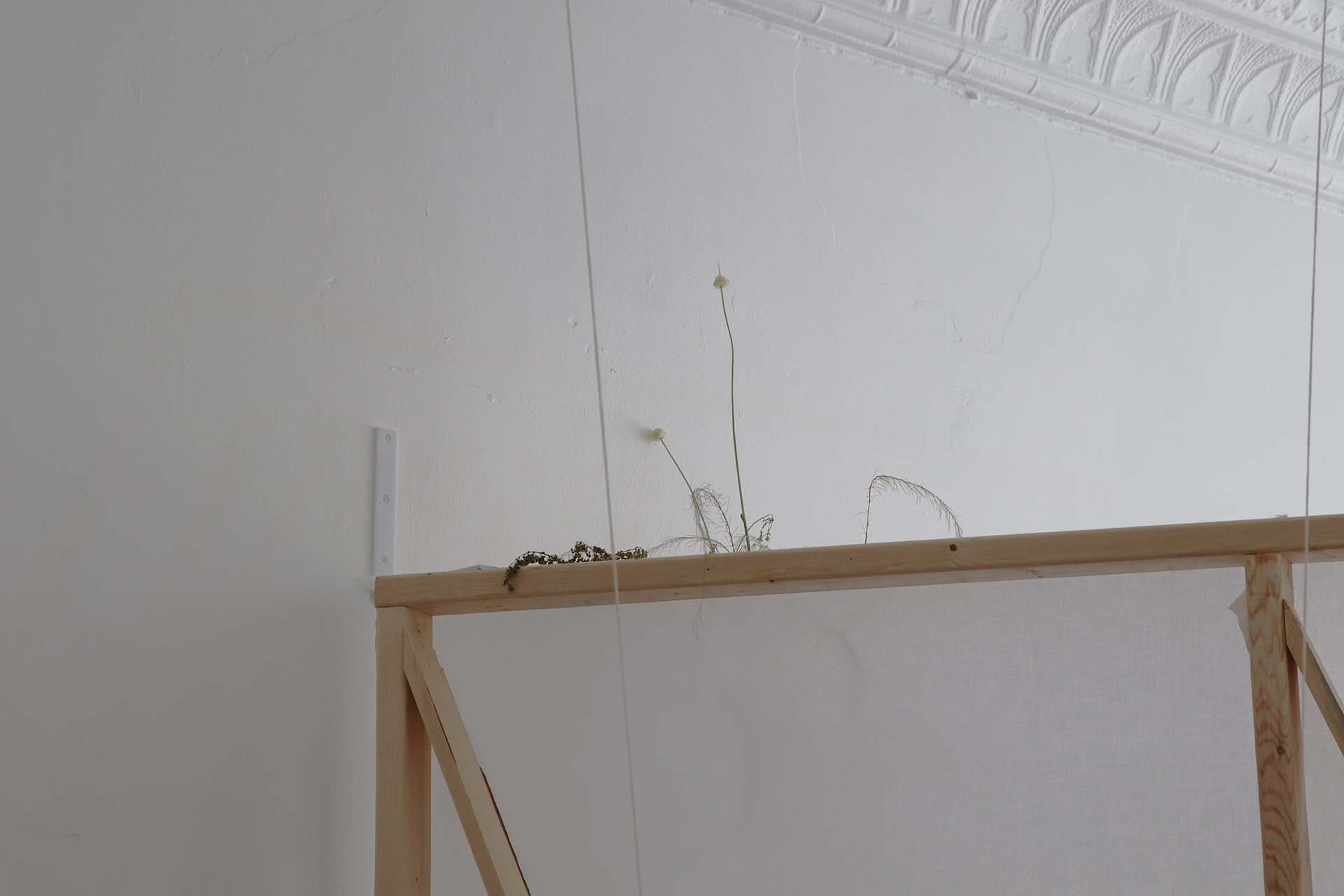
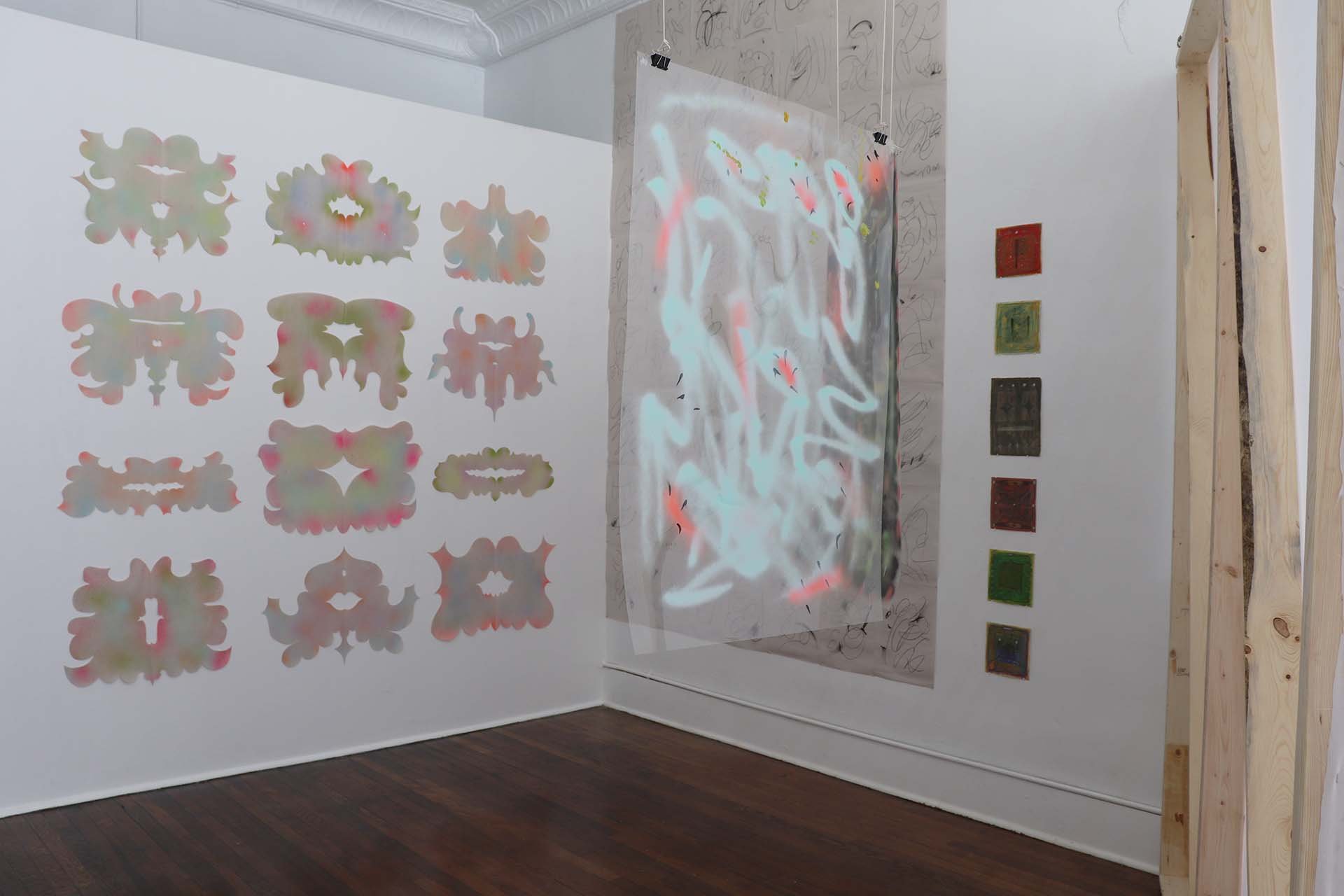
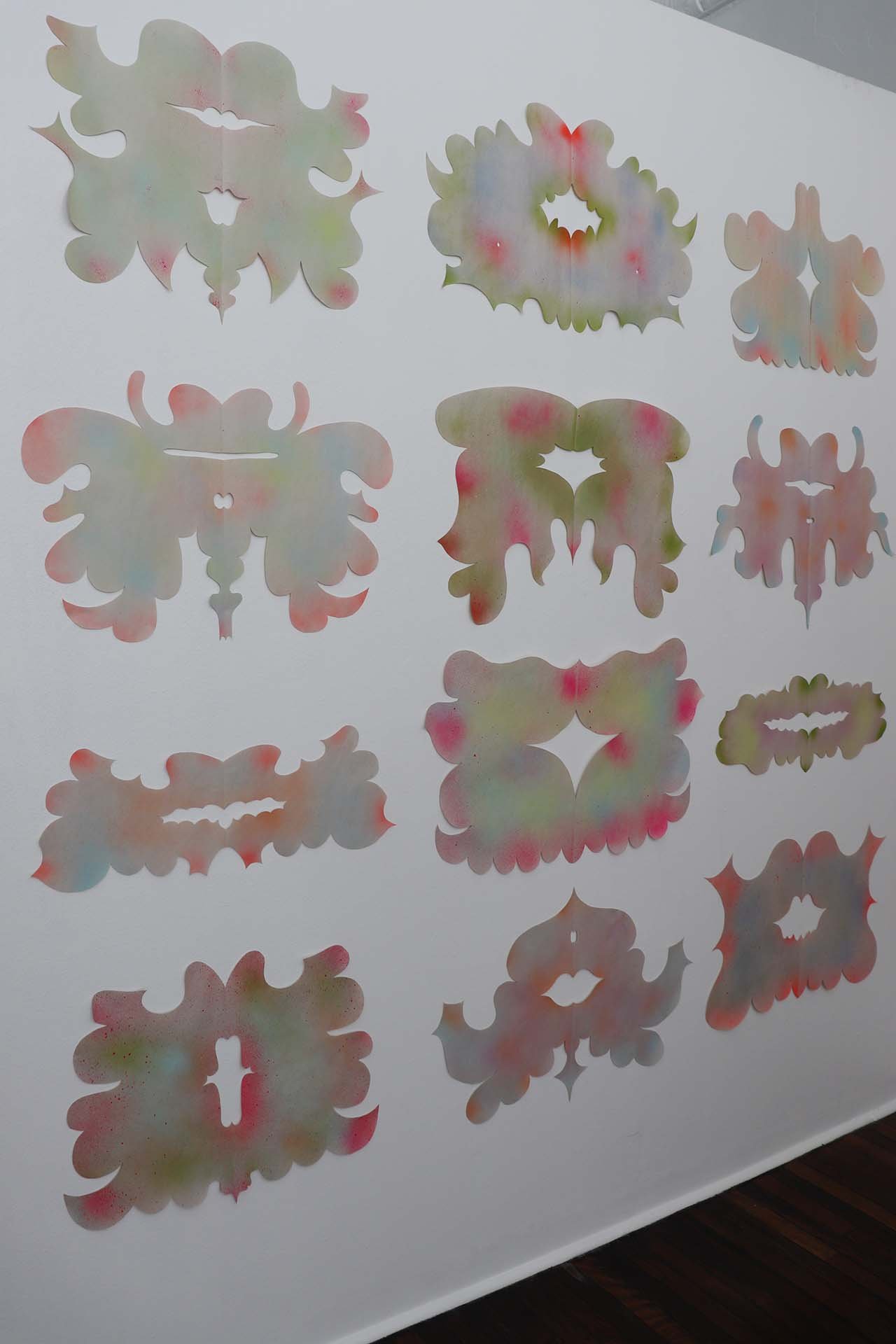
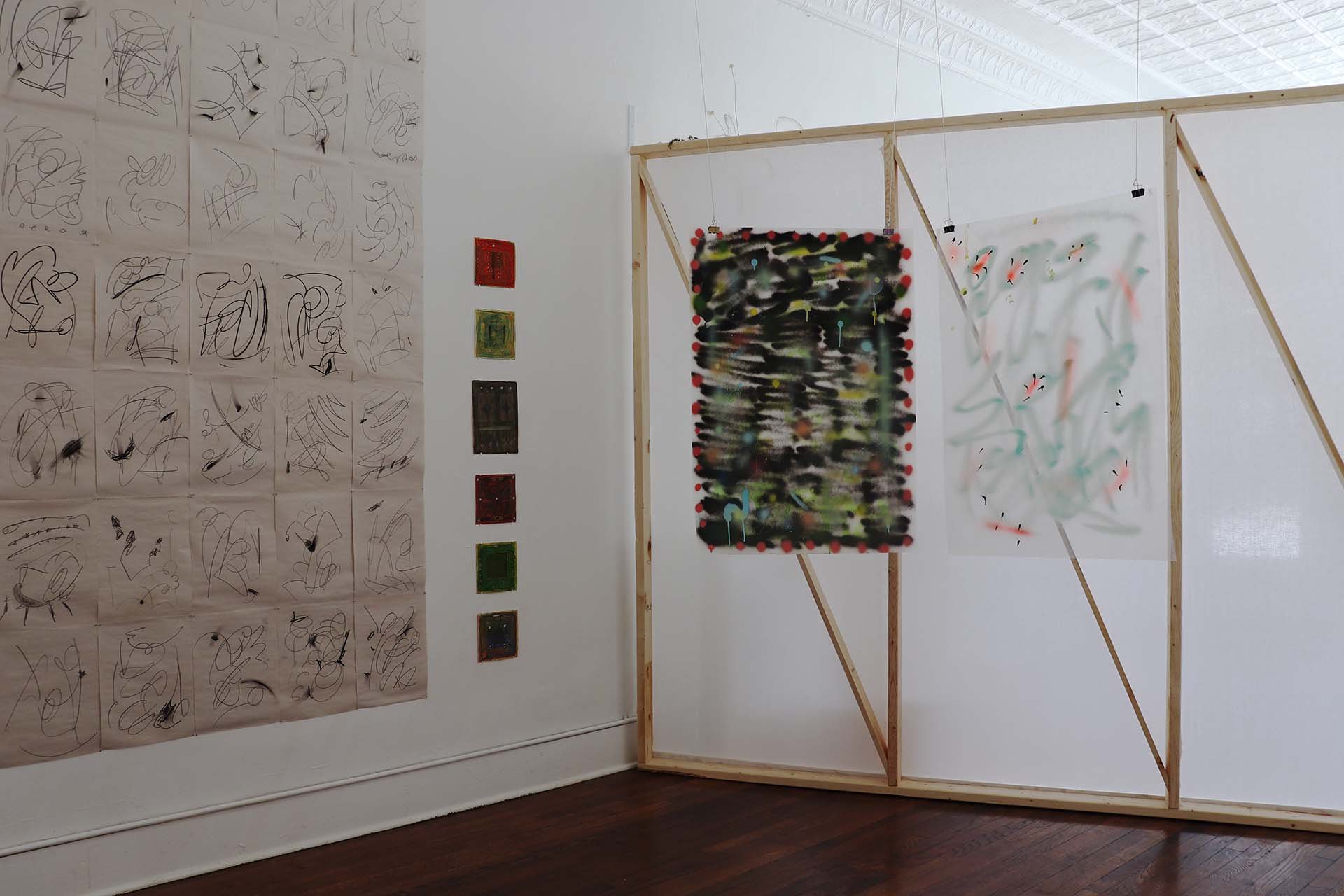
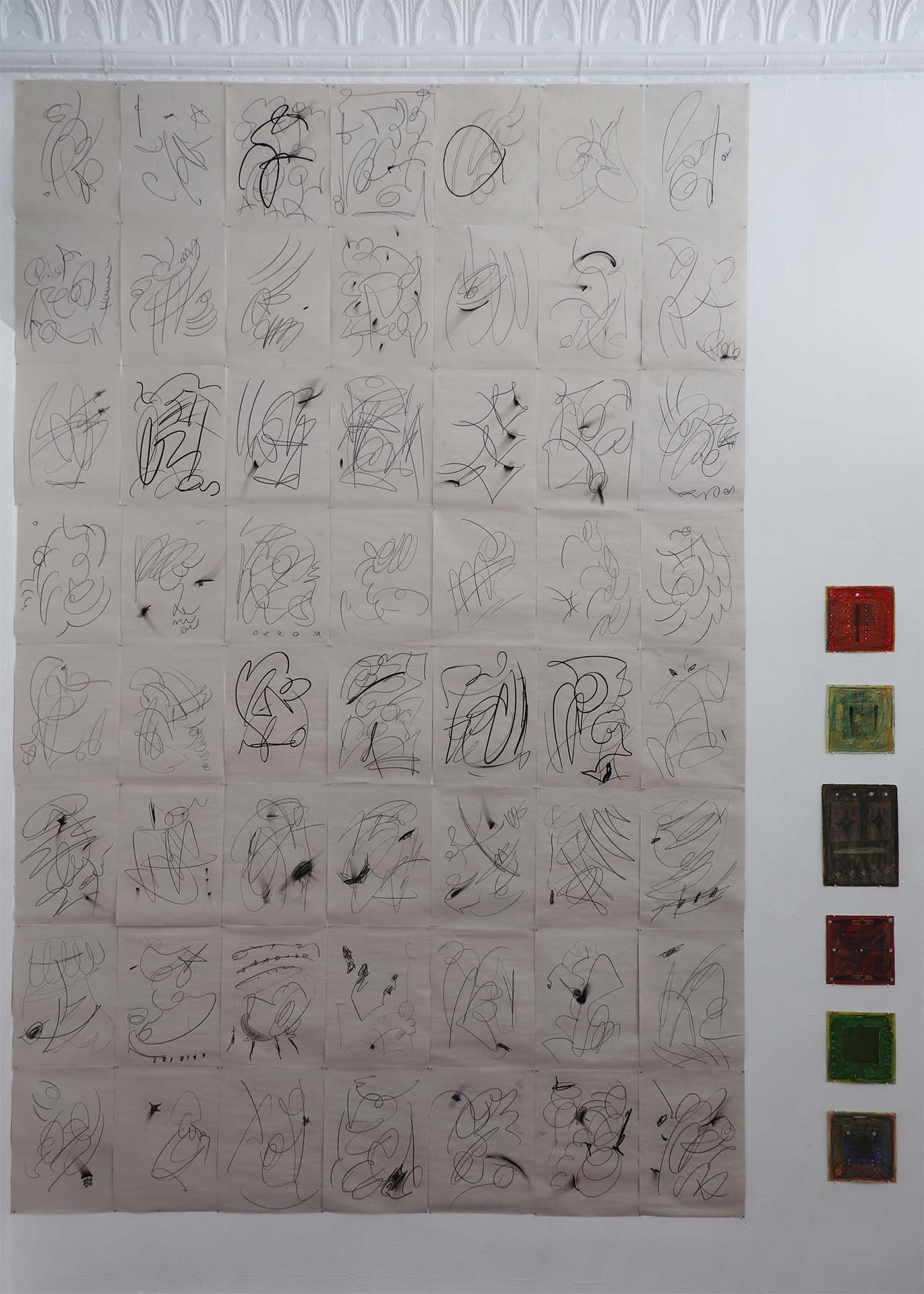
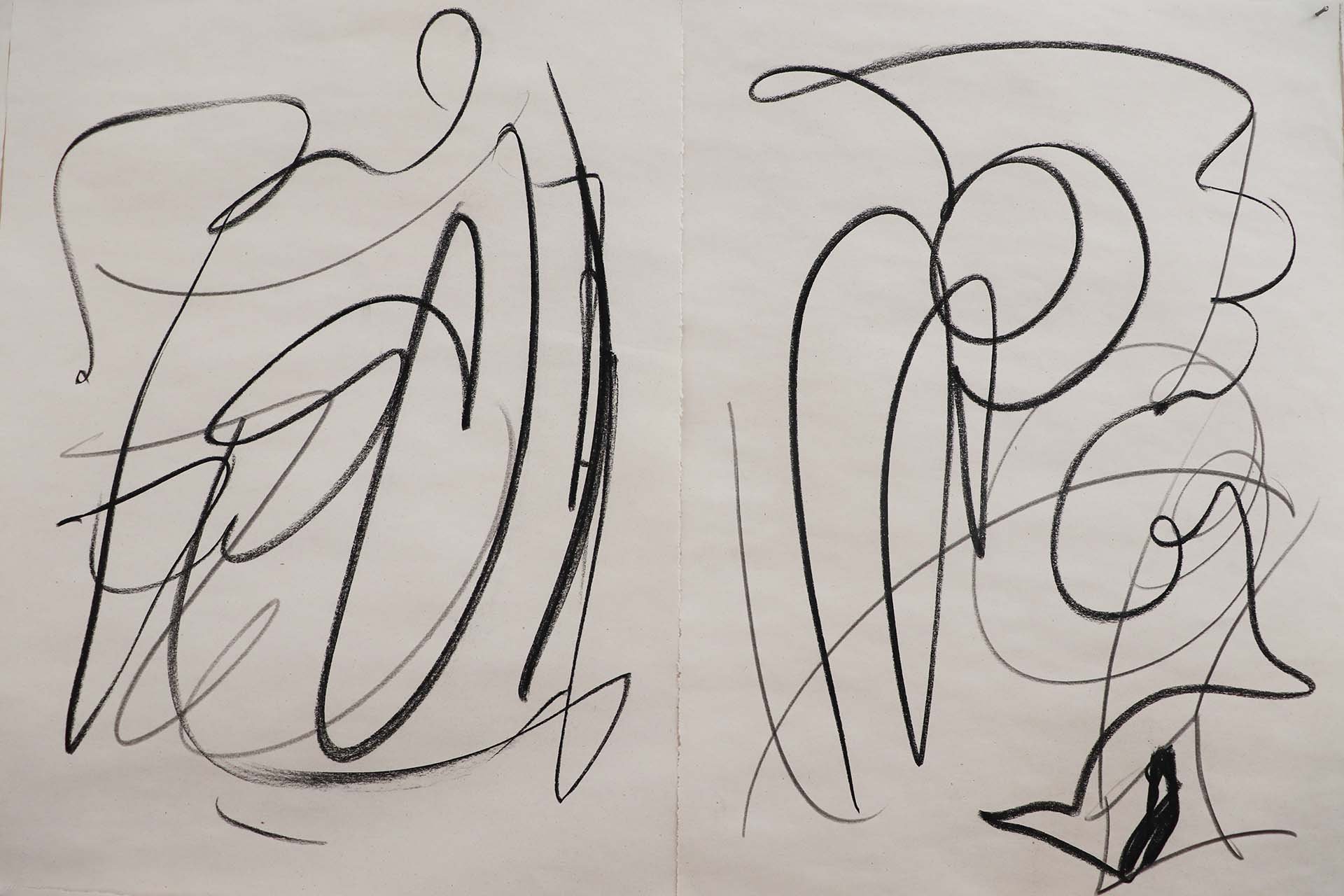
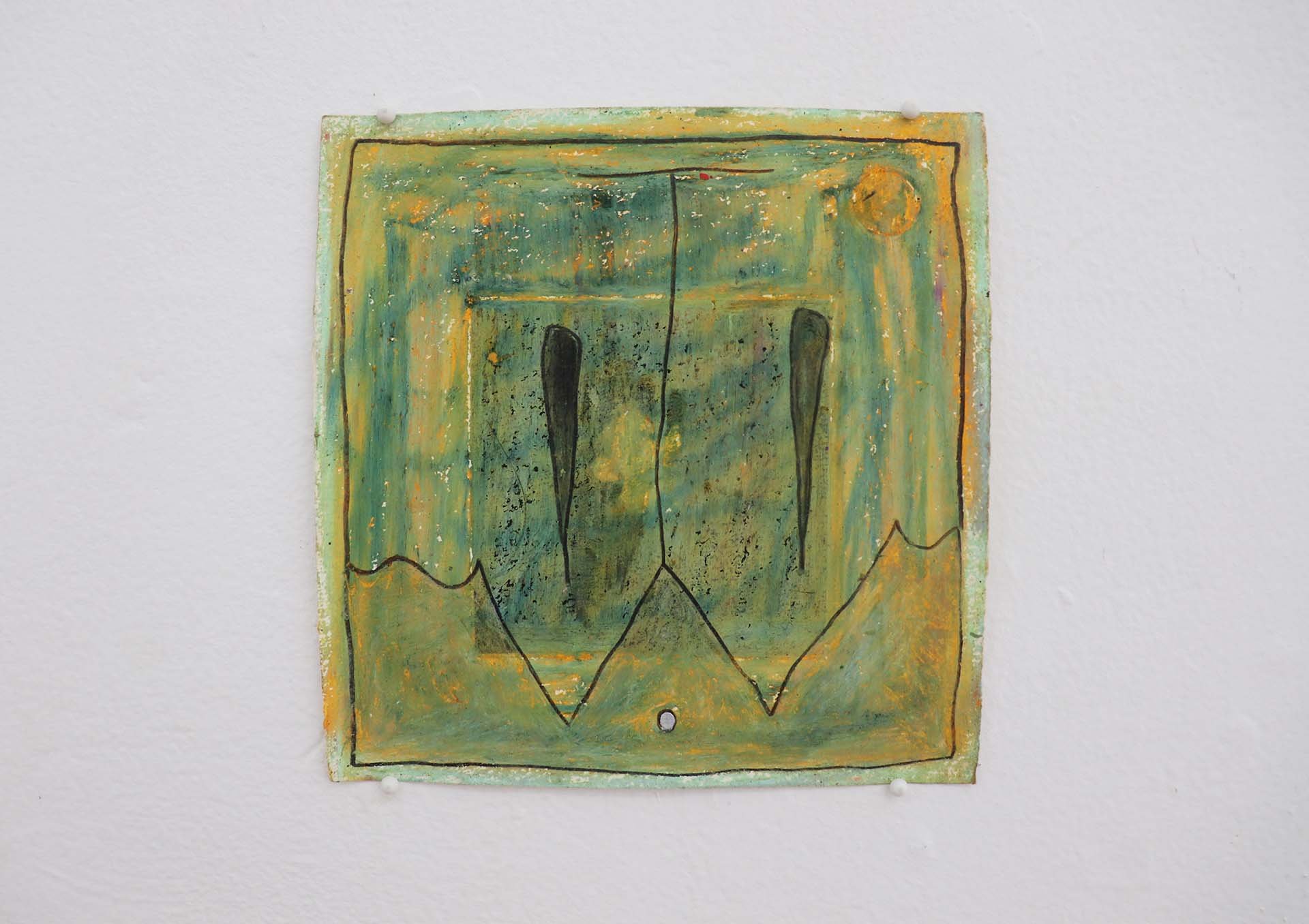
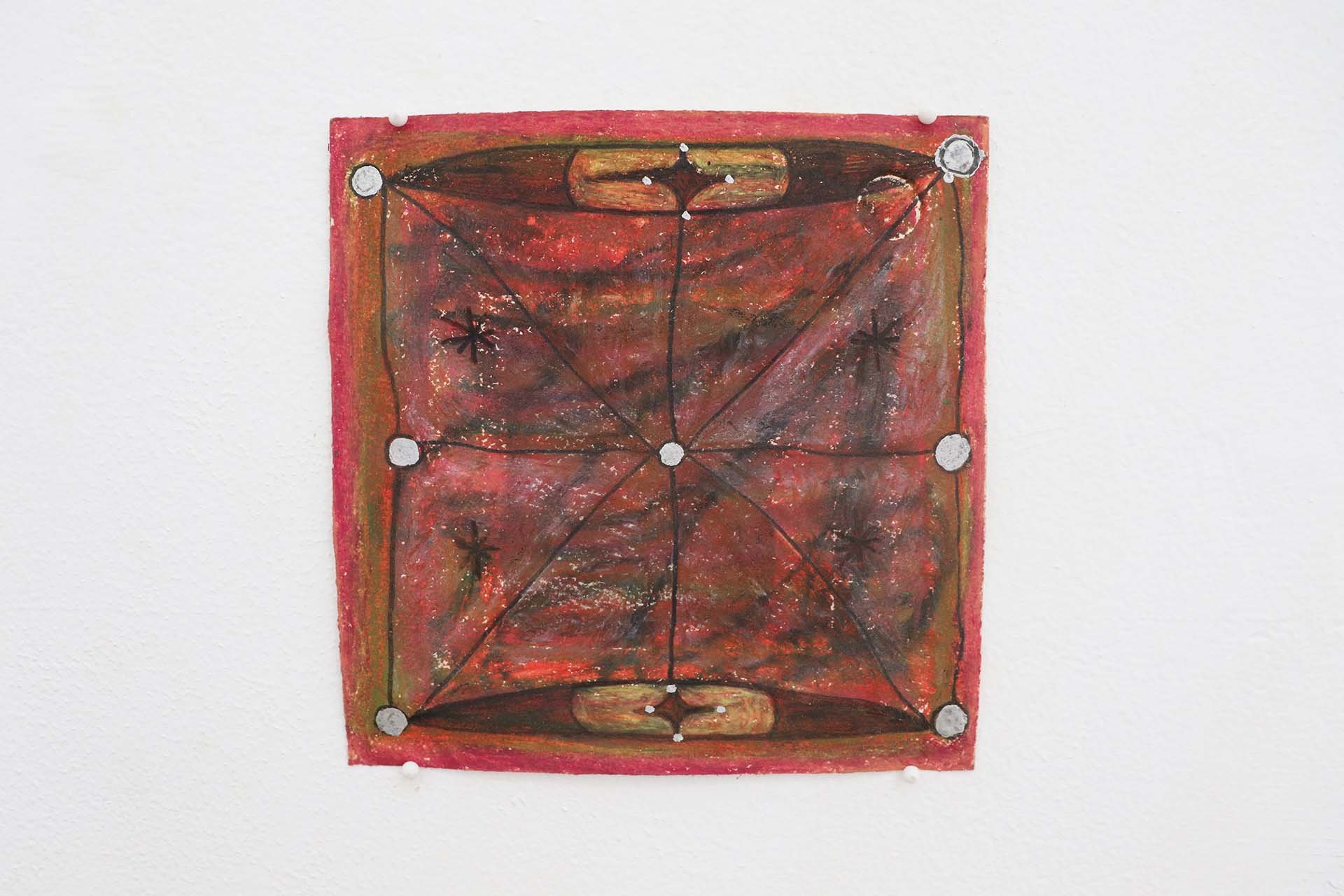
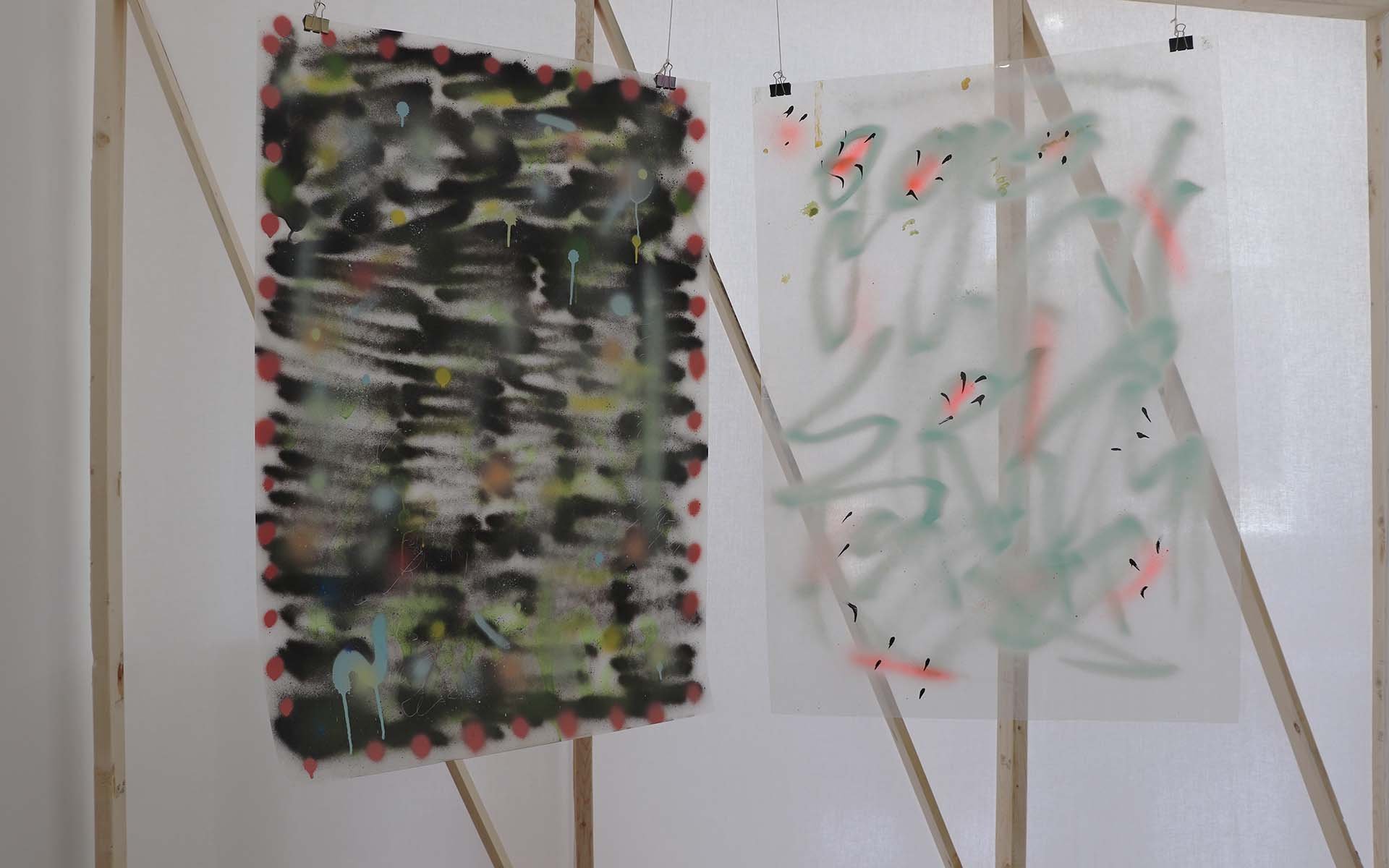
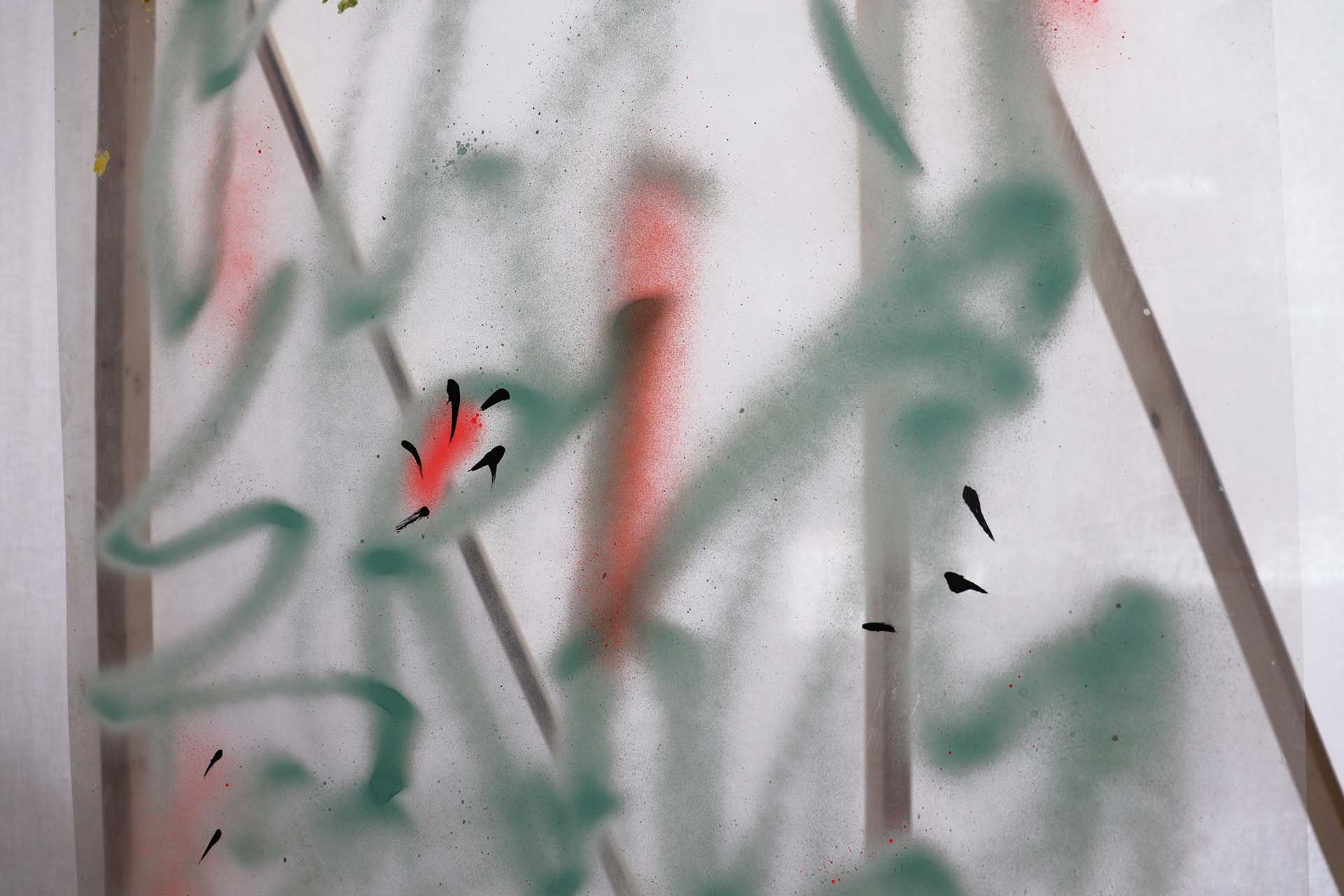
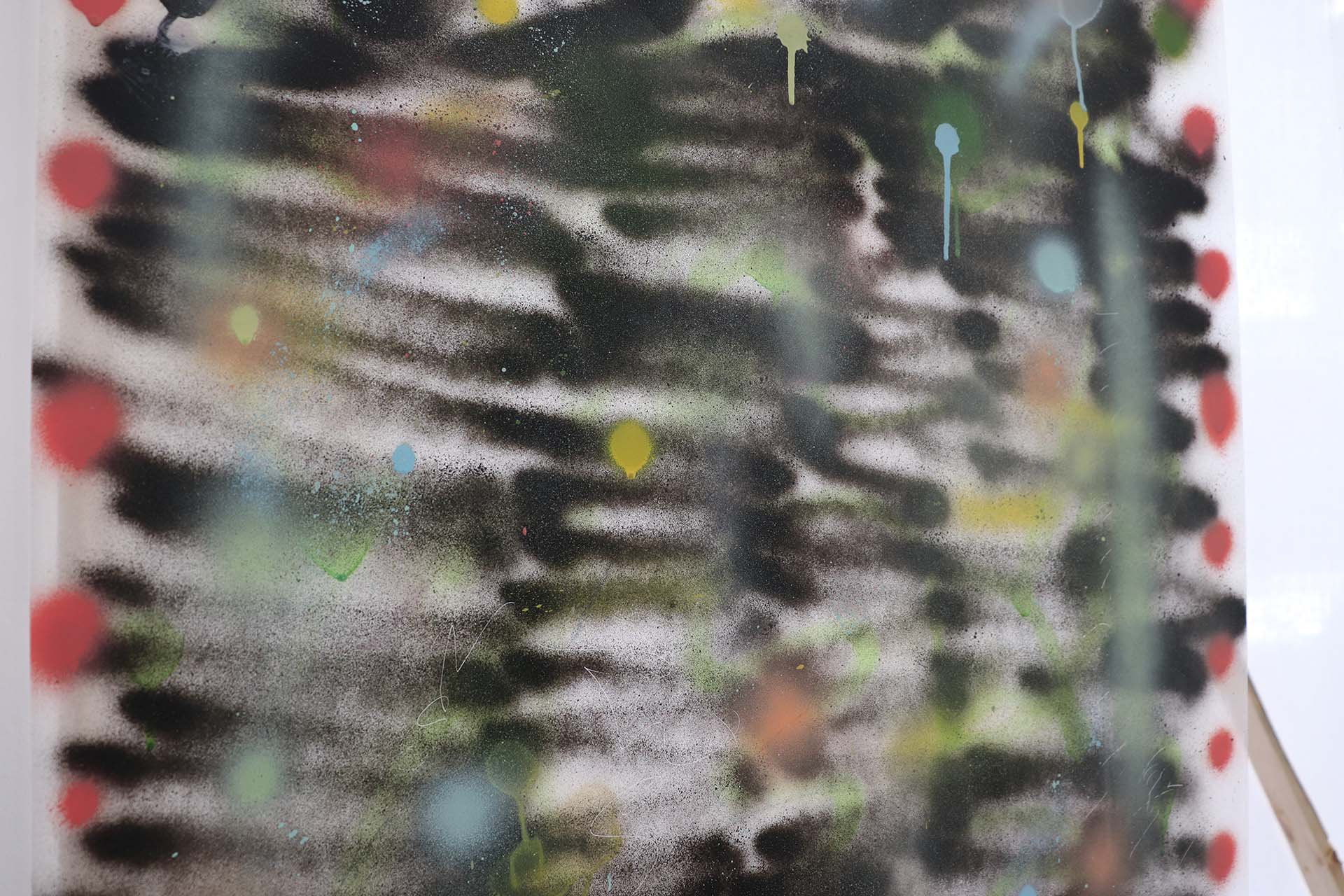
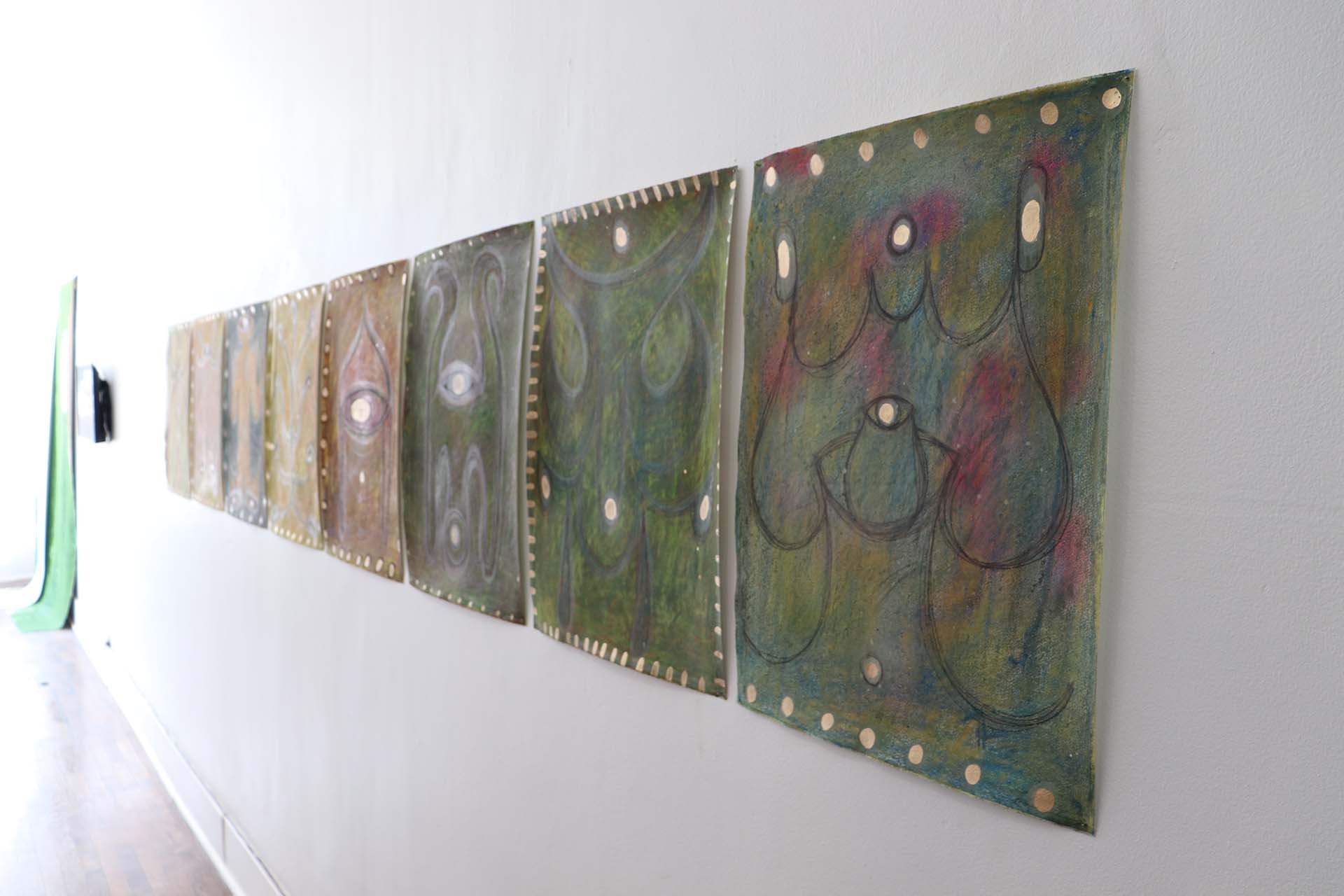
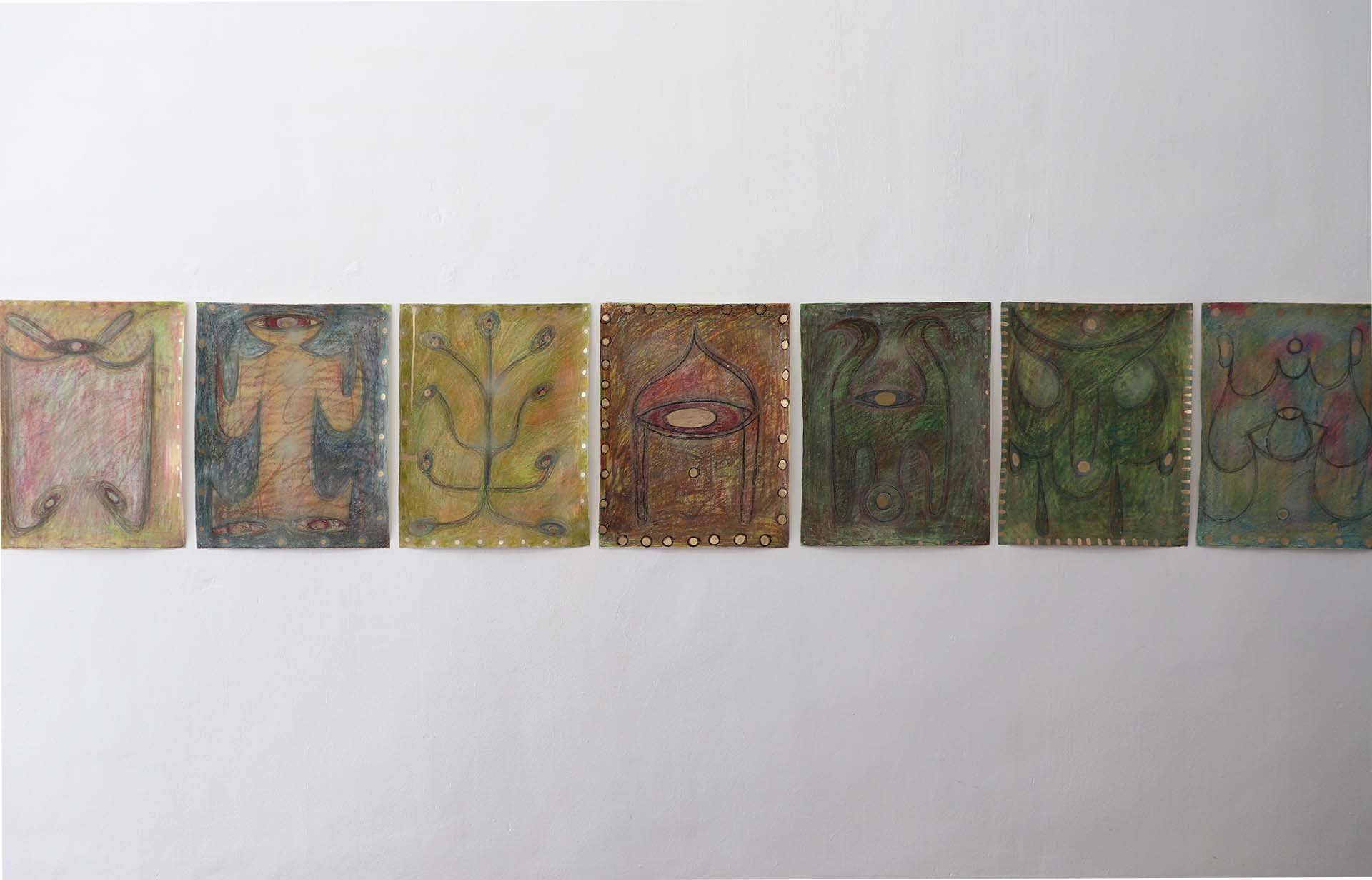
In Conversation: Rosita Relámpago
From Rosita
My work is about symbols; just out of reach of a fixed meaning, whether drawing or clay works (often extra-semiotic with a fluid, playful seriousness), these symbols constitute my journey into the magical.
For me, this boundary is an important one. The gesture of form in a symbol provides the suggestion of a path where all worlds can meet, both the visible and the unseen. The intent is an abstraction, a buzzing constantly going on around me (like a moth’s jerking motion through the air), all collected into a complete atmosphere. Something I am not sure I can possess.
The elements are between earth and water (clay), fixed by uncivilized fire, on the mountaintop above a forest. I am comfortable with the body of the fire. This is where I find myself. An aquarius, of the air but a water-bearer.
Higher forces can enter or be condensed. Generally, the works start as a complete sigil received from the outside, drawn small, folded in half for symmetry. There is a complex relationship with the visionary act that I’m still discovering: what is created somehow also takes place in the body.
I’m always going back to the cosmovisions of pre-hispanic cultures and their relationship with vessels; whether for drinking specific substances or a divine something that enters into your body from another body. Something nebular and electric, with phosphorescent colors, not unlike an old sensation of angels.
—
Mi trabajo es sobre símbolos; más allá de superar un significado fijo, ya sea dibujo o barro (podrían ser extra-semióticos con una seriedad lúdica fluida), constituyen mi viaje hacia lo mágico.
Este límite es importante para mí. El gesto de la forma en un símbolo proporciona la sugerencia de un camino donde todos los mundos pueden encontrarse, tanto el visible como el invisible. El intento es una abstracción, un zumbido constante que sucede a mi alrededor (como el movimiento espasmódico de una polilla en el aire) todo reunido en una atmósfera completa. Algo que no estoy segura de poseer.
Los elementos entre la tierra y el agua (barro), fijados por el incivilizado fuego, en la cima de la montaña, sobre el bosque. Me siento cómoda con el cuerpo del fuego. Ahí me encuentro. Acuario del aire, pero portador de agua.
Fuerzas superiores pueden entrar o condensarse. Generalmente, las obras comienzan como un recibido y completo sigilo, dibujado pequeñito, doblado por la mitad en simetría. Hay una relación compleja con el acto visionario que todavía estoy descubriendo: lo que se crea de alguna manera también sucede en el cuerpo.
Siempre intentando regresar a la cosmovisión de las culturas prehispánicas y a su relación con las vasijas. Ya sea por beber sustancias específicas, o por un propósito divino algo entra a tu cuerpo desde otro cuerpo. Algo eléctrico y nebular, con colores fosforescentes, no muy diferente de la antigua sensación de los ángeles.
About the Artists
Maritza N. Estrada was born in Toppenish, Washington to Mexican parents. She earned an MFA in Creative Writing at Arizona State University, where she served as the 2020 - 2021 inaugural Artistic Development and Research Assistant Fellow for the Center for Imagination in the Borderlands, directed by Natalie Diaz. Estrada calls Arizona, Nebraska, Washington, and México home.
Maritza N. Estrada nació en Toppenish, Washington en una familia mexicana. Recibió su MFA en escritura creativa en Arizona State University, donde actuó como la primera Fellow Asistente de Desarrollo Artístico e Investigaciones durante el año 2020-2021 en el Center for Imagination in the Borderlands, dirigido por Natalie Diaz. Estrada considera Arizona, Nebraska, Washington y México sus hogares.
Obed N Sánchez-Liborio is an interdisciplinary artist, born on September 9, 1995 in Acapulco, MX. In 1996 he was brought into the U.S as an undocumented infant; his earliest memories are on U.S soil, memories of the Afro Mexican immigrant experience. Amongst these memories lives a vivid image of his first encounter with art. The psychological and physical bound to these experiences would incite his artistic toil for the years to proceed.
Obed fomented his innate passion for the arts simultaneously throughout his integration in U.S education system. By age fifteen he began selling ceramic art locally. Art whispered opportunity but aware it would take many years to feed people like him, he shelved the aspiration with the promise of clever return.
At 17, unable to find employment due to legal status, he started a baking business: selling cookies in his high school’s hallways. However, he was reprimanded. Eventually the DREAM Act was passed, by then he was pursuing art through food so he dropped out of school to sell food everywhere from farmers markets to abandoned lots while working full time jobs. His work gained local popularity & soon the city knew the “immigrant boy” by name. An opportune time for the clever return; he made dozens of ceramic dinner pieces & opened a hush-hush restaurant out of his rental home. Unfortunately the pandemic came the following year, freelance artists went hungry. Without government aid he closed with the hope to reopen & the dream of pursuing art was again unsettled. Obed has commenced his final art installation in Omaha and has hopes of relocating to the east coast afterwards.
Obed N Sánchez-Liborio es un artista interdisciplinario, nacido el 9 de septiembre de 1995 en Acapulco, MX. En 1996 lo trajeron a los Estados Unidos cuando era un bebé indocumentado; sus primeros recuerdos están en tierra estadounidense, recuerdos de la experiencia del inmigrante afromexicano. Entre estos recuerdos vive una imagen vívida de su primer encuentro con el arte. Su conexión psicológica y física con estas experiencias incitará su esfuerzo artístico durante los años siguientes.
Obed fomentó su pasión innata por las artes simultáneamente a lo largo de su integración en el sistema educativo de los Estados Unidos. A los quince años comenzó a vender arte en cerámica a nivel local. El arte susurró oportunidad, pero consciente de que llevaría muchos años para que el arte alimentara a personas como él, dejó de lado la aspiración con la promesa de un retorno ingenioso.
A los 17 años, incapaz de encontrar empleo debido a su estatus legal, comenzó un negocio de panadería: vendía galletas en los pasillos de su preparatoria. Sin embargo, lo regañaron. Eventualmente, se aprobó la ley DREAM, para entonces él estaba experimentando con el arte a través de la comida, por lo que abandonó la escuela para vender comida en todas partes, desde mercados de agricultores hasta lotes abandonados, mientras trabajaba a tiempo completo. Su trabajo ganó popularidad local y pronto la ciudad conoció al “niño inmigrante” por su nombre verdadero. Fue un momento oportuno para el regreso inteligente; hizo docenas de platos y tazas de cerámica y abrió un restaurante secreto en su casa que alquiló. Lamentablemente la pandemia llegó al año siguiente, los artistas freelance sufrieron hambre. Sin ayuda del gobierno, cerró con la esperanza de reabrir y el sueño de dedicarse al arte volvió a ser incierto. Obed ha comenzado su instalación de arte final en Omaha y tiene la esperanza de mudarse a la costa este después.
Miriam G. "El Pinche Barrendero" was born in Mexico City in 1991. She currently lives in Oaxaca and is a recipient of the 2022 FONCA grant.
She abandoned her studies for her BFA in Photography at the Universidad Veracruzana and became part of the seven month-long program in Visual Arts and the Centro de las Artes de San Agustín in San Agustín, Oaxaca. For seven years she has been independently creating zines. She is a strong believer in DIY ideals in her artistic practice. She founded the artistic project RABIA alongside Javier Arjona.
She has collaborated with the curatorial project “no hacer nada” in their drawing circle, with SOMA Wednesdays, Salón ACME, and the magazine PICS by Centro de la Imagen in Mexico City. She was one of the founding members of the independent publishing house, Ediciones Estridentes. She has participated in group exhibitions in Mexico City, Córdoba, Xalapa, Guadalajara, Veracruz, USA, France, and Oaxaca, namely in the 3rd Bienal de Veracruz (2016) and her first solo exhibit, “Merecemos Fracaso” (We Deserve Failure) in Mexico City in 2020.
Miriam G. "El Pinche Barrendero" nació en la Ciudad de México en 1991. Actualmente vive en Oaxaca y es becaria del FONCA 2022.
Abandonó sus estudios de la Licenciatura en Fotografía de la Universidad Veracruzana y fue parte del 7mo. Diplomado de Artes Visuales Centro de las Artes de San Agustín. Desde hace 7 años realiza fanzines de manera independiente. Es fiel creyente del DIY en cuanto al quehacer artístico.Es fundadora junto con Javier Arjona del proyecto artístico llamado RABIA.
Ha colaborado en no hacer nada para el programa Ciclo de dibujo, Miércoles de SOMA, Salón ACME, la revista PICS del Centro de la Imagen. Fue uno de los miembros fundadores de Ediciones Estridentes. Ha participado en exposiciones colectivas en la CDMX, Córdoba, Xalapa, Guadalajara, Veracruz, USA, Francia y Oaxaca, destacando la 3a. Bienal de Veracruz (2016) y su primera exposición individual "Merecemos Fracaso" (2020 CDMX).
Marcia Santos was born in 1991 and is the co-founder of the self-managed space "Casa CentroX16" in Ciudad Juárez. She attended the Educational Program SOMA 2017 and the First Transcontinental Laboratory of Living Art of La Pocha Nostra 2015. She received her Bachelor’s in Theory and Criticism of Art at the Autonomous University of Ciudad Juárez, and her Master in Studies and Creative Processes in Art and Design.
Her work has been exhibited at 512 Arts Museum of Contemporary Art in Albuquerque, USA; The 2nd Edition of La No Bienal in Costa Rica, 2018; CoCA Seattle, USA, 2018; the 3rd Border Biennial 2013, the 2nd National and International Biennial 2013 of Art "Desde Aquí" in Colombia, "Proyecto Satélite" in Museo Tamayo Contemporary Art 2017; "MONUmentografía" at the Ciudad Juárez Art Museum, 2016. She was granted the Young Creators scholarship "David Alfaro Siqueiros" (2013-14), Laboratorio de Arte in La Quiñonera (2013-14) and ICOCULT (2017-18). She was selected in the National Biennial "Artemergente" 2015. In 2014 she did a research residency in Contemporary Art with the group Curatoria Forense in Uruguay.
Her artistic work is developed through “border thinking” in order to explore a bodily experience as a permeation of its own borders. Articulating her process from a creative position related to being placed as a subordinate, the artist explores borders and boundaries through symbolism and various textual and visual media.
Marcia Santos nació en 1990 y es cofundadora del espacio autogestivo "Casa CentroX16" en Ciudad Juárez. Cursó el Programa Educativo SOMA 2017; el Primer Laboratorio Transcontinental de Arte Vivo de La Pocha Nostra 2015. Graduada de la Lic. Teoría y Crítica del Arte en la Universidad Autónoma de Ciudad Juárez. Maestría en Estudios y Procesos Creativos en Arte y Diseño.
Su trabajo ha sido exhibido en 512 Arts Museo de Arte Contemporáneo de Albuquerque, E.U.A.; La 2da Edición de La No Bienal en Costa Rica, 2018; CoCA Seatle, EUA, 2018; la III Bienal Fronteriza 2013, en la II Bienal Nacional e Internacional 2013 de Arte “Desde Aquí” en Colombia, "Proyecto Satélite" en Museo Tamayo Arte Contemporáneo 2017; "MONUmentografía" en Museo de Arte de Ciudad Juárez, 2016. Obtuvo la beca Jóvenes Creadores “David Alfaro Siqueiros” (2013-14), Laboratorio de Arte en La Quiñonera (2013-14) e ICOCULT (2017-18). Seleccionada en la Bienal Nacional “Artemergente” 2015. En 2014 realizó una residencia de investigación en Arte Contemporáneo con el grupo Curatoria Forense en Uruguay.
Su trabajo artístico se desarrolla a partir del pensamiento fronterizo para la exploración de la vivencia corporal en tanto permeabilidad de sus fronteras. Enunciando su labor desde una posición creativa relacionada al lugar de lo subalterno, la artista explora lo fronterizo desde lo simbólico y a través de diversos medios visuales y textuales.
Sonia Madrigal lives and works in Nezahaulcóyotl (a municipality of Mexico State). Her work explores distinct visual narratives to reflect, in personal and collective ways, themes around the body, violence, and territories, principally focusing on east Mexico State. She studied her Bachelor’s in Informatics at UNAM. She has participated in photography workshops in the FARO de Oriente and FARO Tláhuac, with the photographer Mark Powell (2009-2014), and in the Photographic Production Seminar 2016 at the Centro de la Imagen under the instruction of Verónica Gerber Bicecci. She has been part of the National System of Creators of Art at FONCA since 2020. She was granted the Programa Jóvenes Creadores del Fondo Nacional para la Cultura y las Artes (FONCA) 2013-2014. She was a grantee to be in residence at the Meeting of Collectives for Critical Geography and Autonomous Geographies (Ecuador, 2019) and in the Meeting of Iberoamerican Photography Collectives E·CO/14 (Brazil, 2014). She has participated in exhibitions in Mexico, Chile, Brazil, Perú, Argentina, Uruguay, France, Italy, Canada, Spain, and the United States. Her work has been published in Harper’s Magazine (NY, 2020), Aperture Magazine (NY, 2019), and The Guardian (England, 2017). She is cofounder of the gallery Mal d3 Ojo and she participates in the projects Fotógrafas en el Mapa (Women Photographers on the Map), Feria de la Peri (Periphery Fair), and Everyday Neza.
Sonia Madrigal vive y trabaja en Nezahualcóyotl. Su obra explora distintas narrativas visuales para reflexionar, de manera personal y colectiva, en torno al cuerpo, la violencia y el territorio, enfocándose principalmente en el Oriente del Estado de México. Estudió la Lic. en Informática en la UNAM. Cursó talleres de fotografía en el FARO de Oriente y FARO Tláhuac, con el fotógrafo Mark Powell (2009-2014) y el Seminario de Producción Fotográfica 2016 del Centro de la Imagen bajo la tutoría de Verónica Gerber Bicecci. Forma parte del Sistema Nacional de Creadores de Arte del FONCA desde el año 2020. En 2018 fue seleccionada para participar en la XVIII Bienal de Fotografía del Centro de la Imagen. Fue becaria del Programa Jóvenes Creadores del Fondo Nacional para la Cultura y las Artes (FONCA) 2013-2014. Fue becada para realizar una residencia en el Encuentro de Colectivos de Geografía Crítica y Geografías Autónomas (Ecuador, 2019) y en el Encuentro de Colectivos Fotográficos Iberoamericanos E·CO/14 (Brasil, 2014). Ha participado en exposiciones en México, Chile, Brasil, Perú, Argentina, Uruguay, Francia, Italia, Canadá, España y Estados Unidos, y publicado su trabajo en medios como Harper's Magazine (Nueva York, 2020), Aperture Magazine (Nueva York, 2019) y el diario británico The Guardian (Inglaterra, 2017). Es cofundadora de Galería Mal d3 ojo y participa en la gestión de los proyectos Fotógrafas en el Mapa, Feria de la Peri y Everyday Neza.
Rosita Relámpago was born in the State of Mexico in 1994. She currently resides in Oaxaca. Her discourse focuses on the development of an abstract and intimate language based on the gesture and form of a symbol. It suggests a route of connections between the visible and the invisible, automatic writing, trance, movement, rhythm and dance. She develops a body of work made up of a family of clay pieces that deal with the translation of symbols as a representation of the body and spirit through a vessel. Her practice always stems from pre-Hispanic civilizations, their relationship with ceremony, divine purpose, and sustenance.
Rosita Relámpago nació en el Estado de México en 1994. Actualmente reside en Oaxaca. Su discurso tiene que ver con el desarrollo de un lenguaje abstracto e íntimo basado en el gesto y la forma en un símbolo. Sugiere un camino de conexiones entre lo visible y lo invisible, la escritura automática, el trance, el movimiento, el ritmo y la danza. Desarrolla un cuerpo de obra conformado por una familia de piezas de barro que tienen que ver con la traslación de símbolos como una representación del cuerpo y el espíritu a través de la vasija. Siempre partiendo de las civilizaciones prehispánicas, su relación con la ceremonia, el propósito divino y la sustancia.
Fortuna is an artist-run space and transdisciplinary artist residency program that connects artists and art communities in Omaha, NE and Mexico through reciprocity and exchange. By bridging the physical and rhetorical distances between these artists, Fortuna grounds its exchange program in collaborative, community-centered, site-specific residencies that cultivate a deeper cross-cultural understanding of place.

